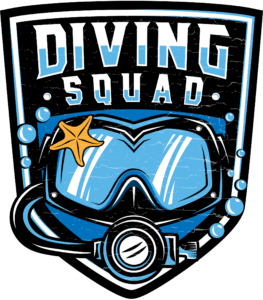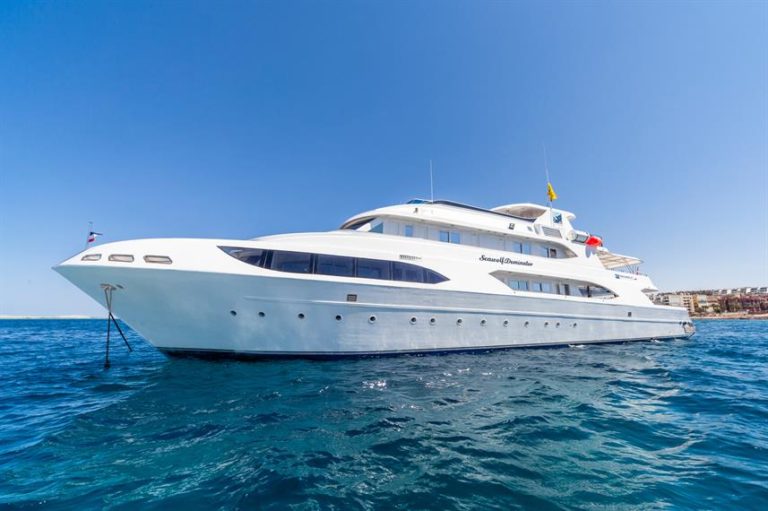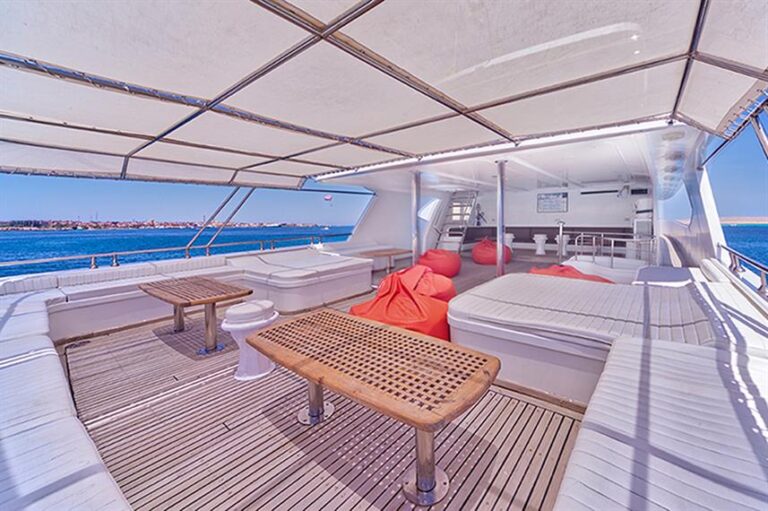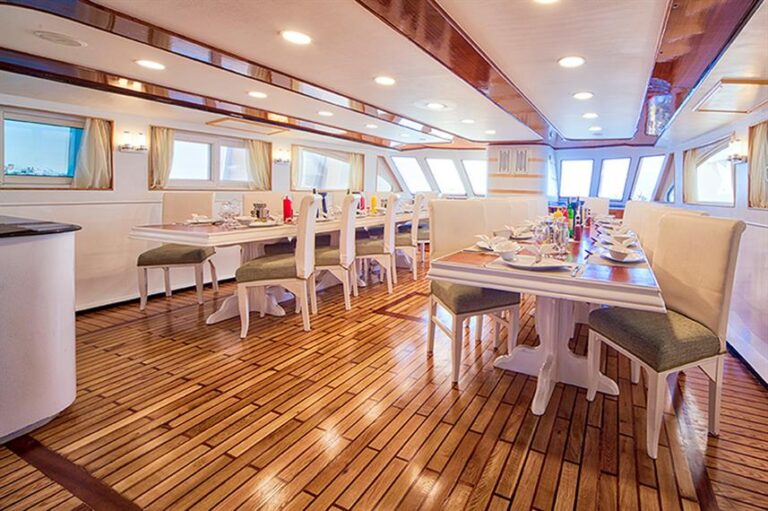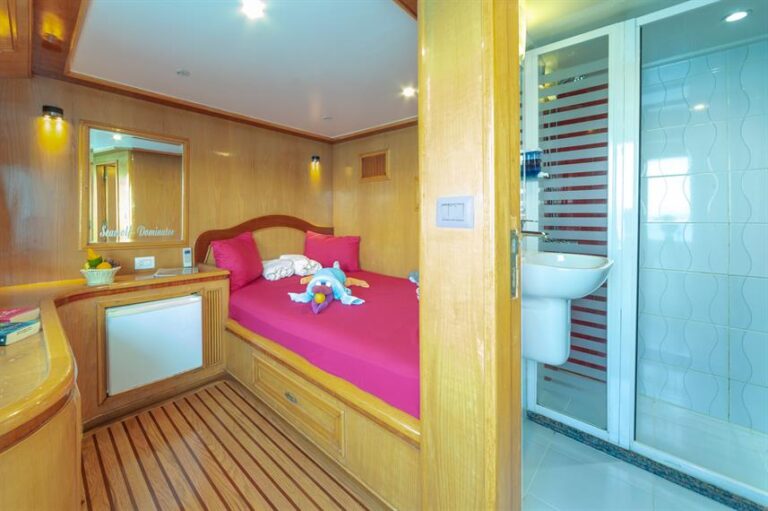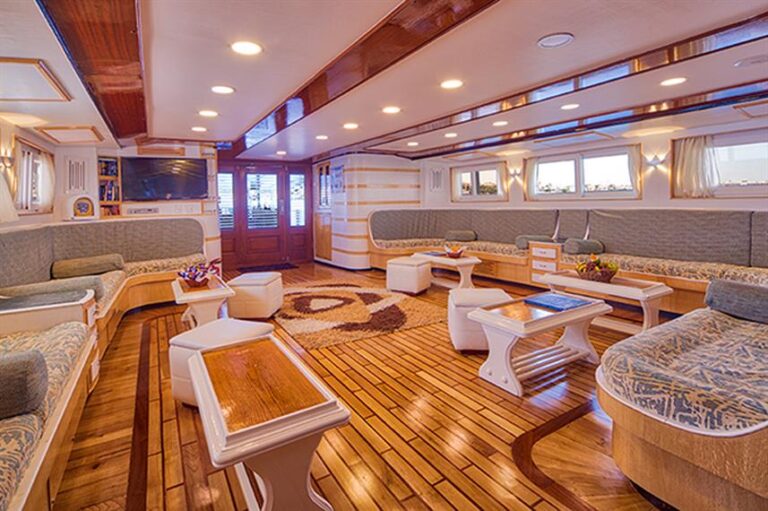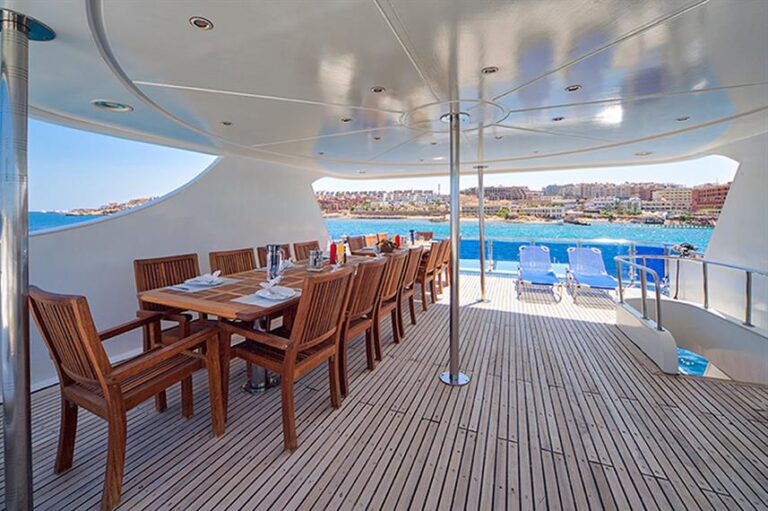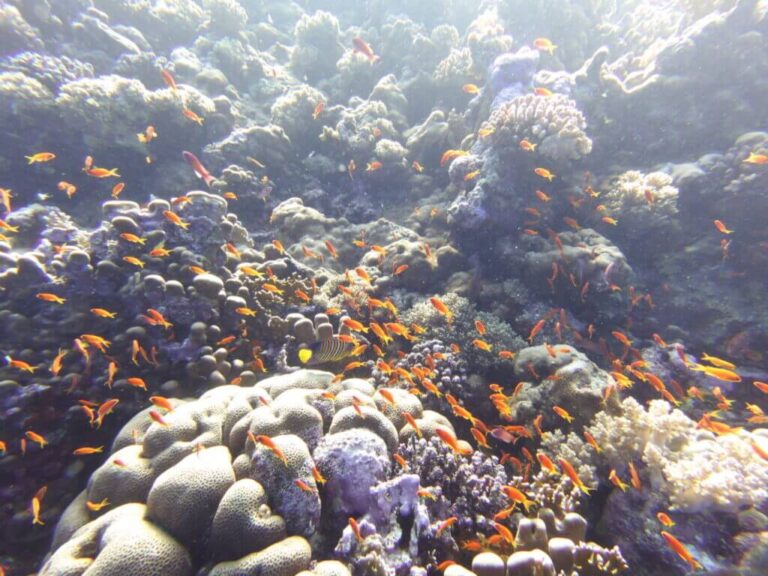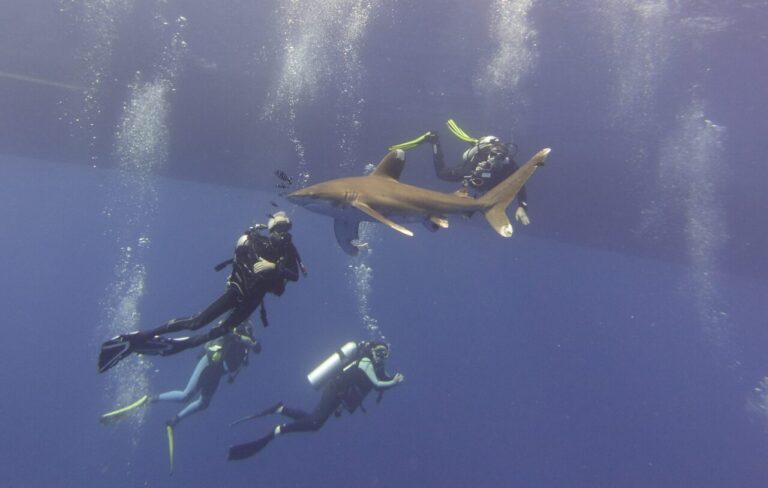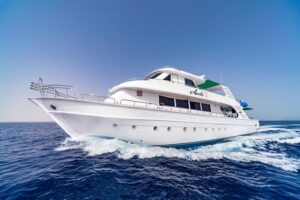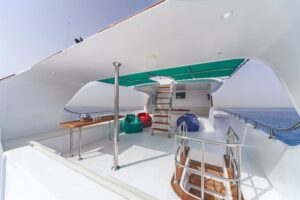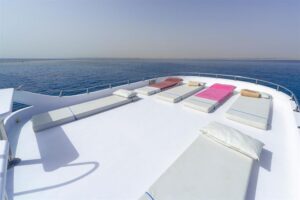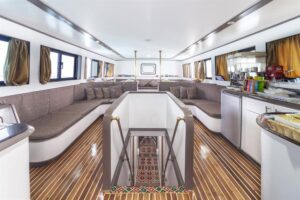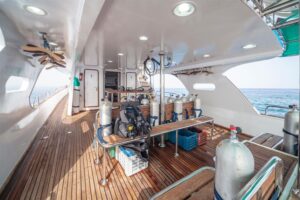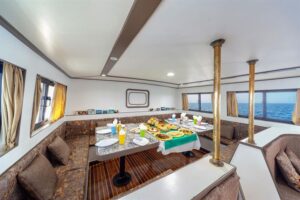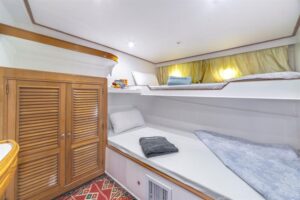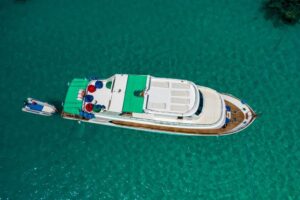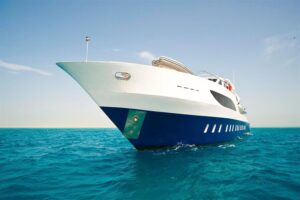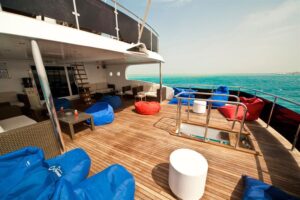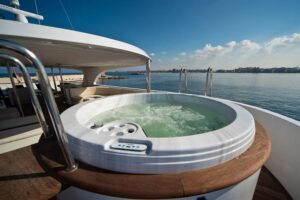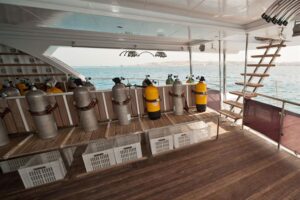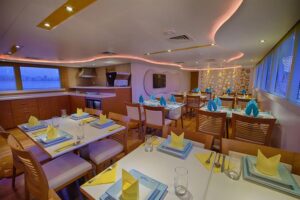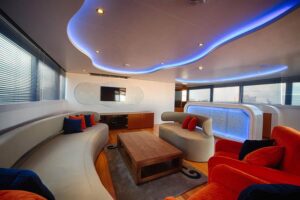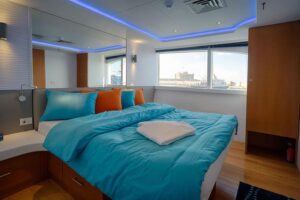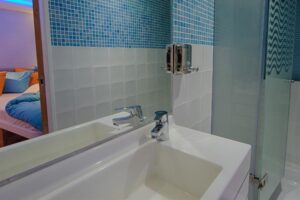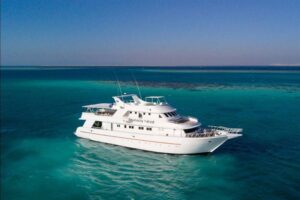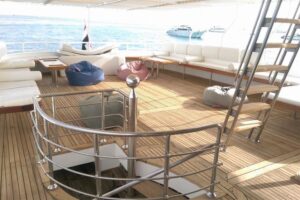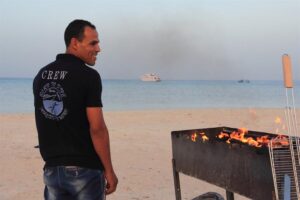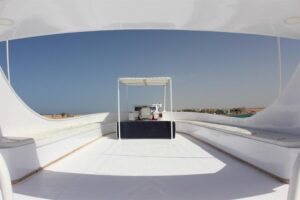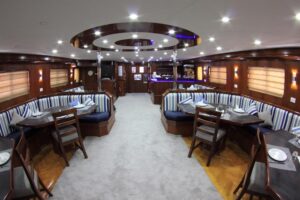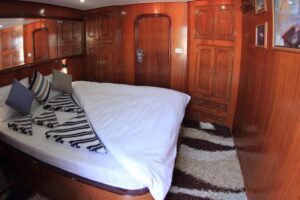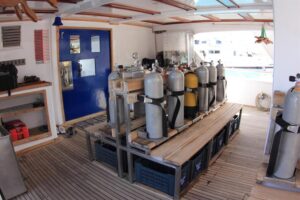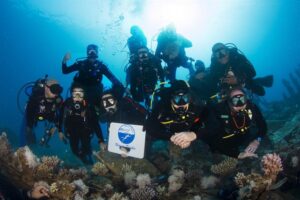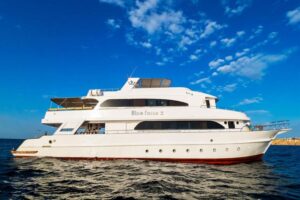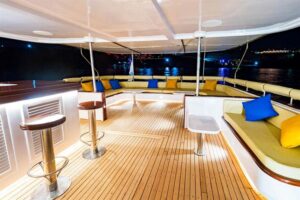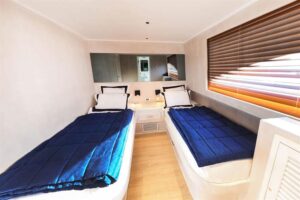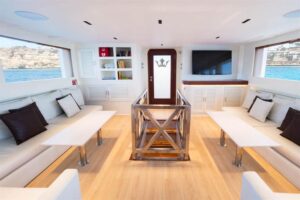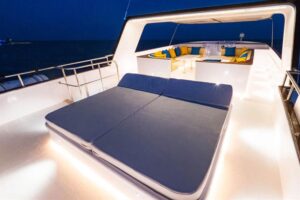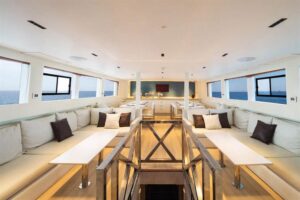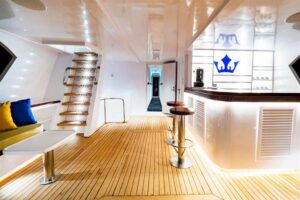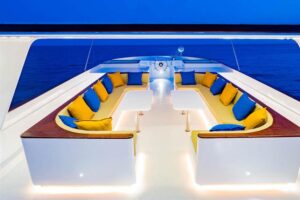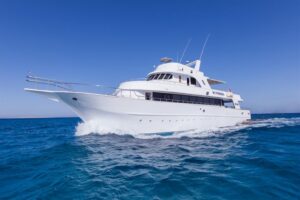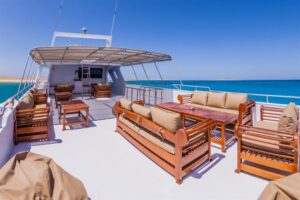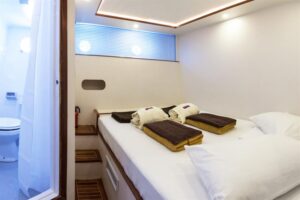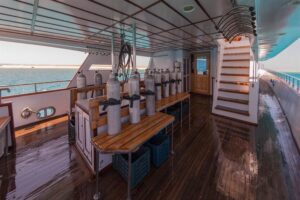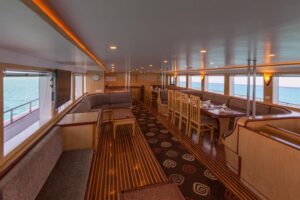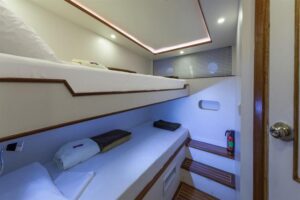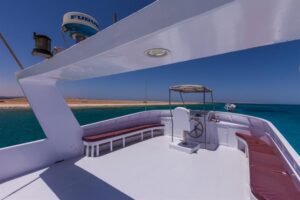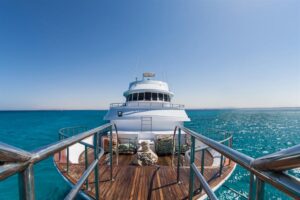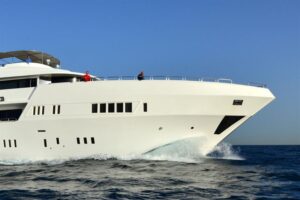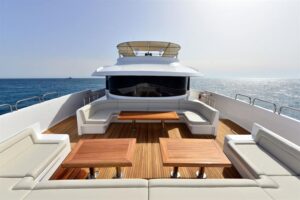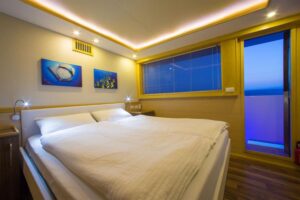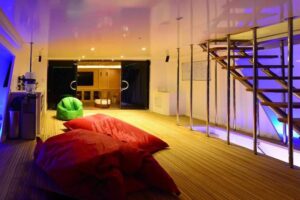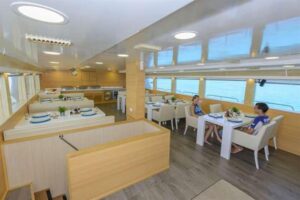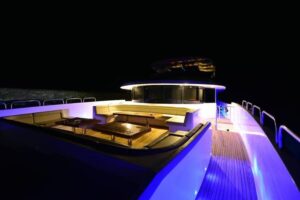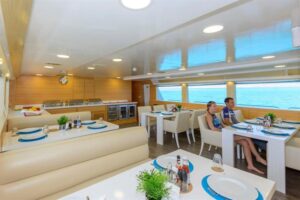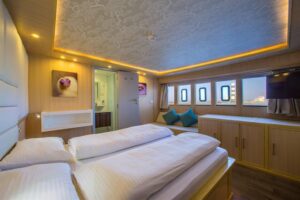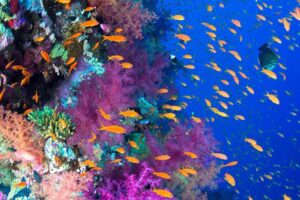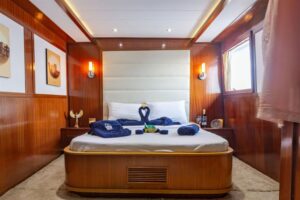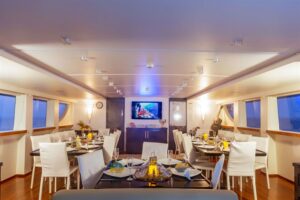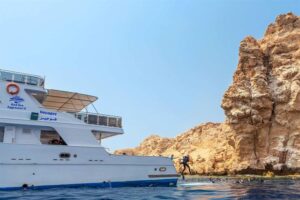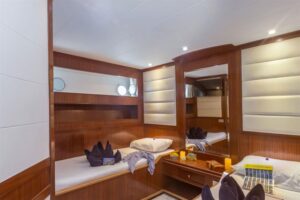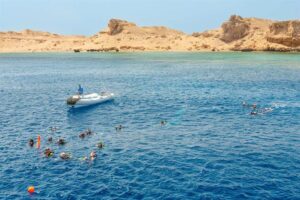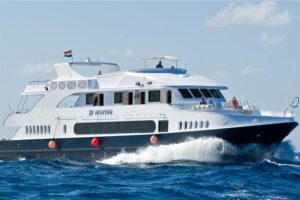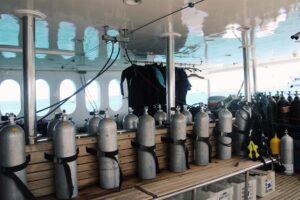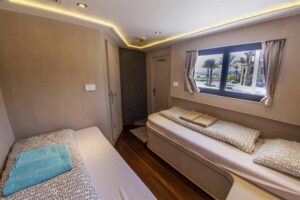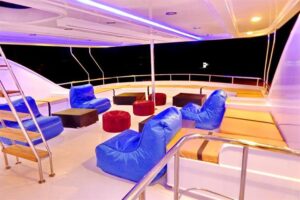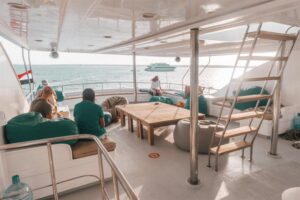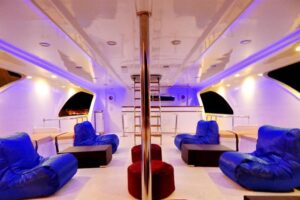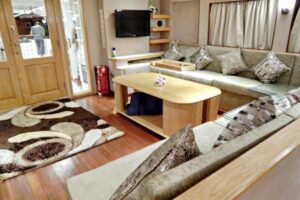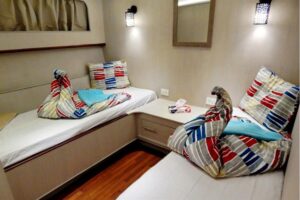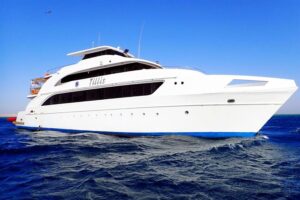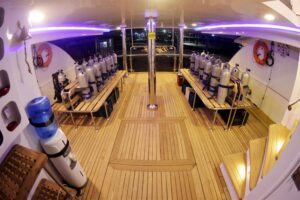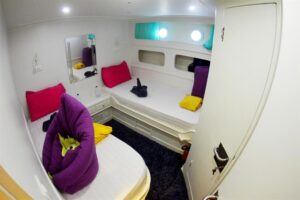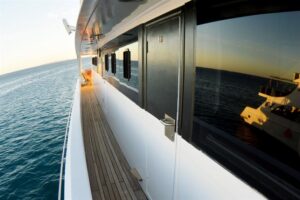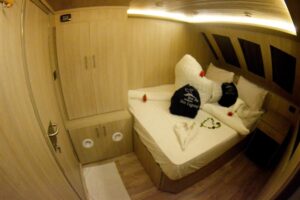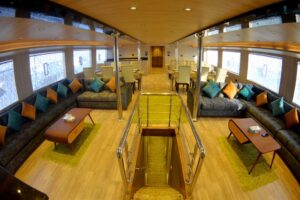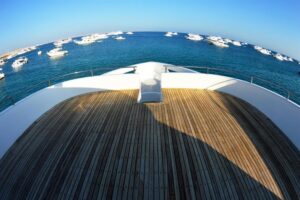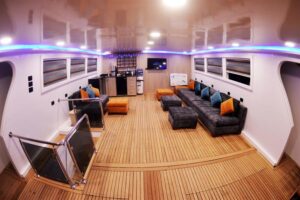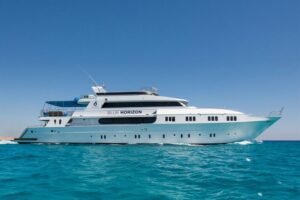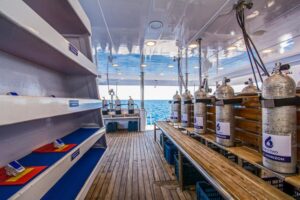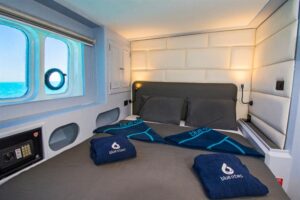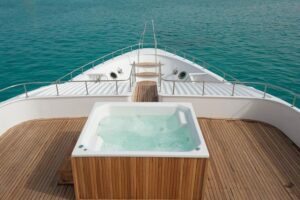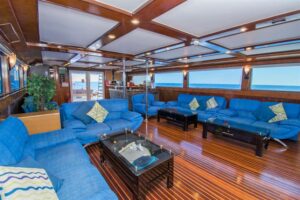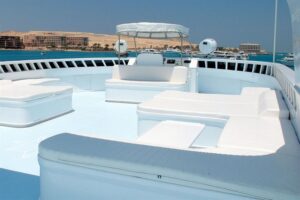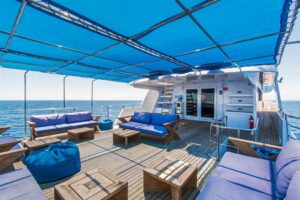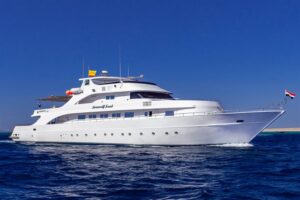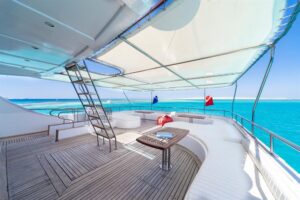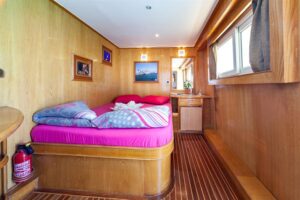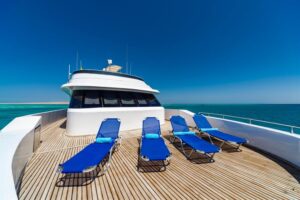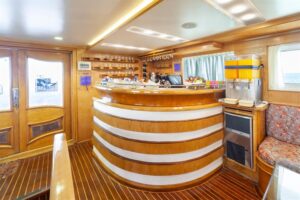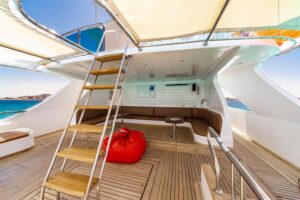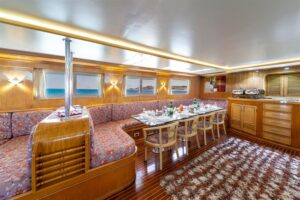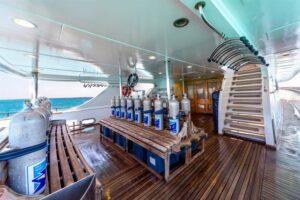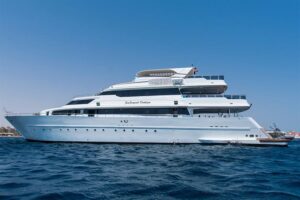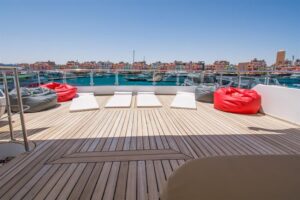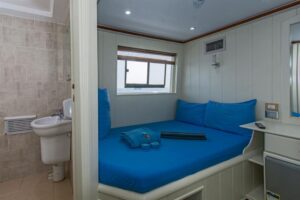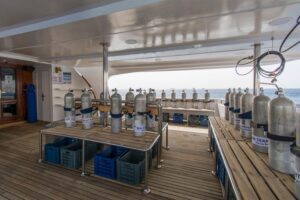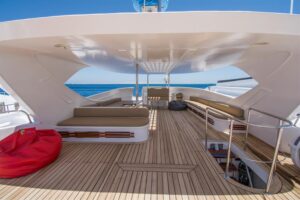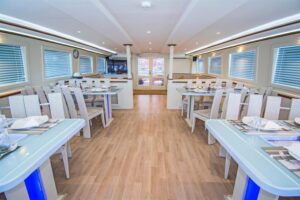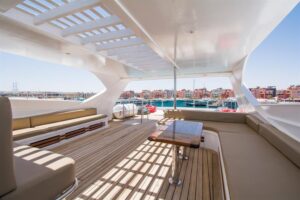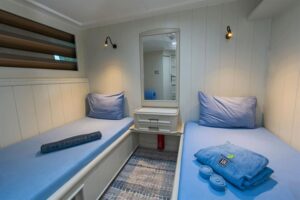
Best Red Sea Liveaboard Reviews [2024]
The Red Sea is one of the best places in the world to go on a liveaboard!
It’s home to many superb shipwrecks as well as some of the healthiest coral reefs in the world; plus iconic species like Oceanic Whitetip and Hammerhead Sharks.
Diving the Red Sea is also considerably cheaper than other liveaboard destinations; it’s easy to reach and offers routes suitable for beginners and experienced divers alike.
In this epic guide of awesomeness, we’ll review the best Red Sea liveaboards; we’ll also cover the different regions and what to expect, when to go and things you should pack.
I’ll describe my own experience diving a Red Sea liveaboard; from the moment of boarding to the very last day with original videos and photos of what I saw.
Of course; there’s no such thing as an all-time best Red Sea liveaboard. It’s all about finding the right one for you!
This depends on your budget, level of diving experience and what kind of dive sites you want to visit.
For example, the North Red Sea is where most of the famous shipwrecks are found; most are in fairly shallow waters and are easy to dive even for beginners.
The South Red Sea meanwhile, is a little more off-the-beaten-track and is where you’ll find big pelagics such as the incredibly inquisitive Oceanic Whitetip Sharks.
Down South, lucky divers can also see Hammerhead and Thresher Sharks, Manta Rays, Dolphins and even Whales.
Around both regions; there’s plenty of superb coral coating a dramatic underwater landscape of shallow gardens, towering pinnacles and epic walls.
Scuba divers will also see countless reef fish as well as turtles, blue spotted stingrays, giant clams, nudibranch, octopus and various critters. Visibility is superb at up to 131 feet!
Besides their itineraries, liveaboards also vary a lot in terms of the actual yachts themselves. The cheaper options tend to be smaller with simpler cabins.
However more luxurious ones can be very large indeed with huge cabins and other amenities like jacuzzis, sunset barbecues and even massage services. Dayum!
With all this in mind; let’s dive into our reviews of the Best Liveaboards to dive the Red Sea with this year.
This post is divided into 4 Parts:
Our Top Pick: What we consider to be the Best Red Sea Liveaboard of all time.
QUICK ANSWER table comparing the major differences between each Red Sea Liveaboard.
Detailed Reviews of all the Red Sea liveaboards on this page.
Info Section, which gives more detail about different regions (North vs South) of the Red Sea as well as what to expect and when to go!
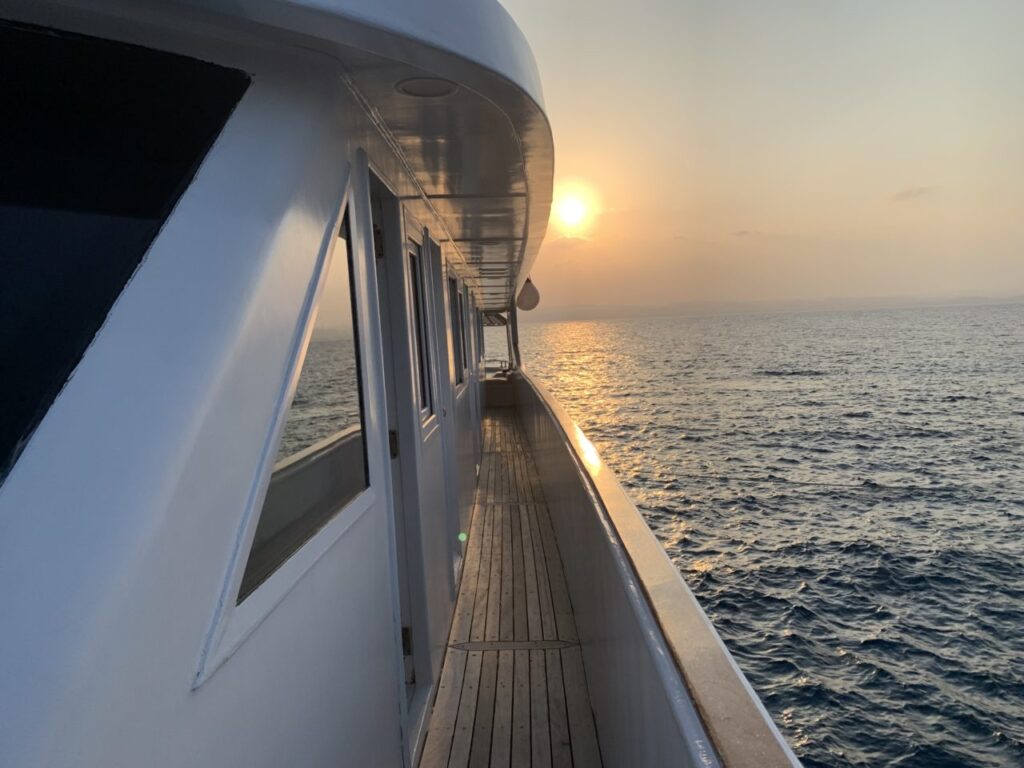
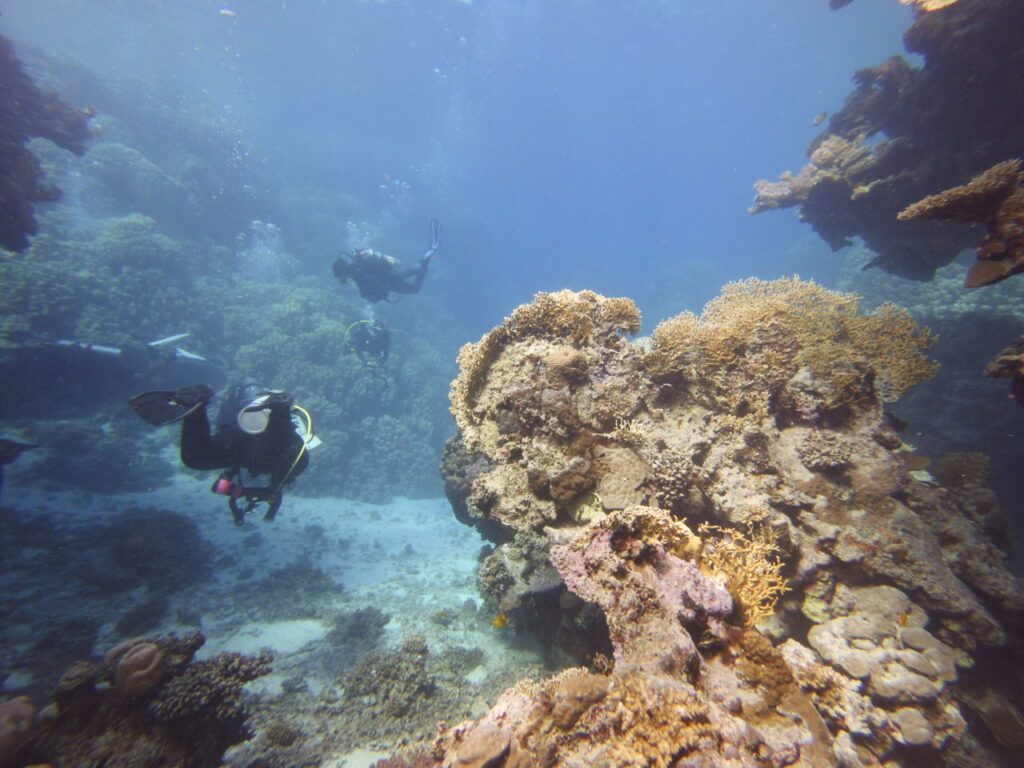
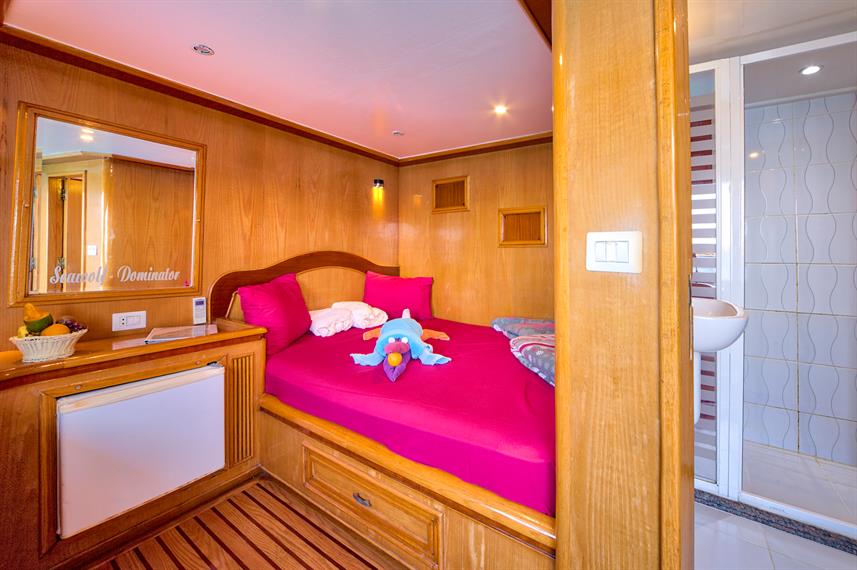
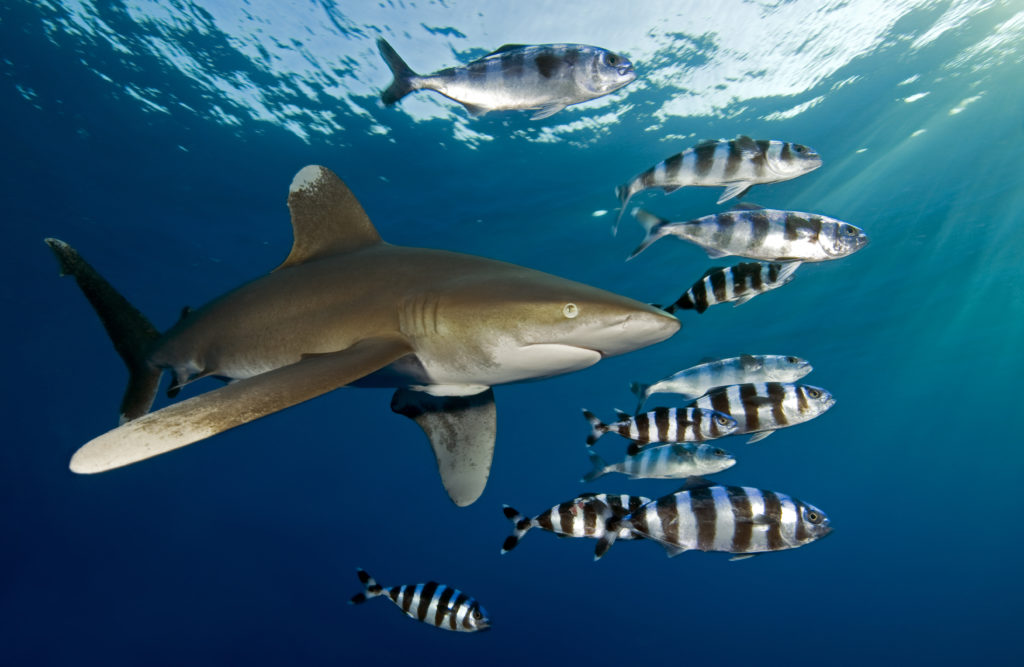
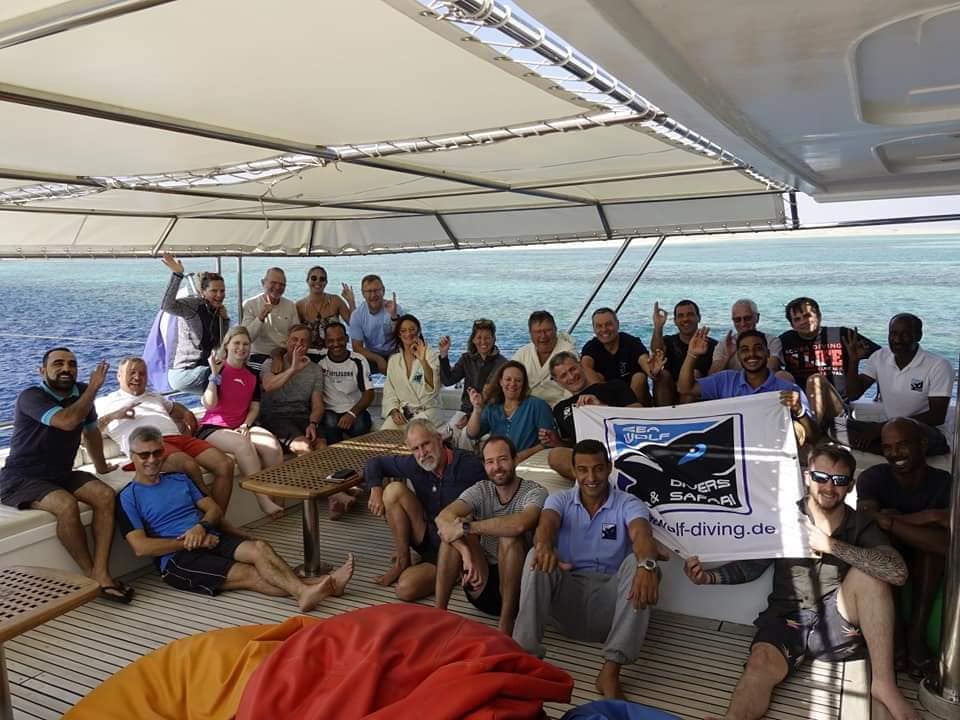
See that handsome fellow in the lower right ^ hand corner? That’s me! On my first Red Sea Liveaboard trip in November 2022…
Read about my experience diving the Red Sea here – or stay on this page to discover the Best Red Sea Liveaboard for you!
Alex
1) BEST RED LIVEABOARD OVERALL: Seawolf Dominator
- Price: > $$ (Awesome Value for Money)
- South & North Red Sea Trips
- 7 Night Trips
- Incredible Customer-Service
- Delicious Food
- Comfortable Cabins
The Seawolf Dominator is the best liveaboard I’ve ever been on. This is thanks to the amazing customer service, incredible food, awesome dive itineraries and the yacht itself which is super spacious and well furbished; the cabins have beautiful hardwood interiors, ensuite bathrooms and very comfy beds!
Despite all this, Seawolf Dominator is only a mid-priced liveaboard. Subsequently it offers superb value for money. Throughout the year, there are trips to the South Red Sea where big pelagics like sharks and mantas await – as well as to the North Region which is famous for shipwrecks and beginner friendly dives.
During my trip through the South Region in November 2022, we saw incredible coral reefs home to all manner of fish, critters and turtles. The highlight was meeting several highly inquisitive Oceanic Whitetip Sharks. On other recent trips, guests had seen Thresher and Hammerhead Sharks, Manta Rays and Dolphins!
Food is served buffet style and I’ve gotta say it was really hands down some of the tastiest grub I’ve ever chomped down on, it was expertly cooked and superbly seasoned! There was all manner of fresh seafoods, meats, vegetables as well as delicious desserts.
The boat crew were incredibly friendly and helpful; they truly went out of their way to make everything feel like a gourmet experience. The dive guides were extremely experienced; highly professional and had an awesome knowledge of the various marine life we saw.
I can’t overstate how great it was diving with the Seawolf Dominator – I’ll definitely be back in 2024″! – Alex: Grand Admiral of the Diving Squad.
QUICK ANSWER:
| Liveaboard: | Notable Features: | Region Explored | Price | Trip Length (Nights) | Guest Capacity: | Check on LiveAboard.com | |
|---|---|---|---|---|---|---|---|
| Seawolf Dominator | 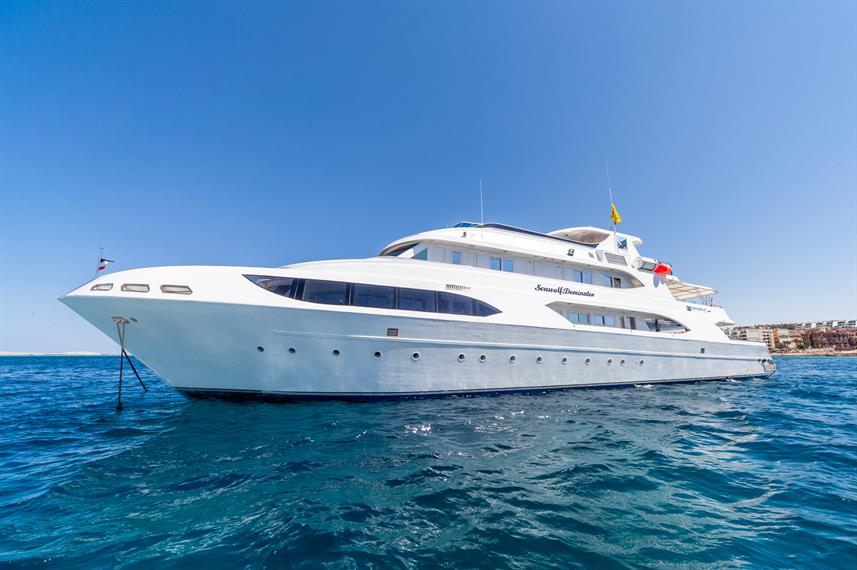 | Top Pick, Amazing Food, Awesome Crew, Beautiful Cabins, Value for Money | South & North | $$ | 7 | 22 | Click Here |
| Amelie | 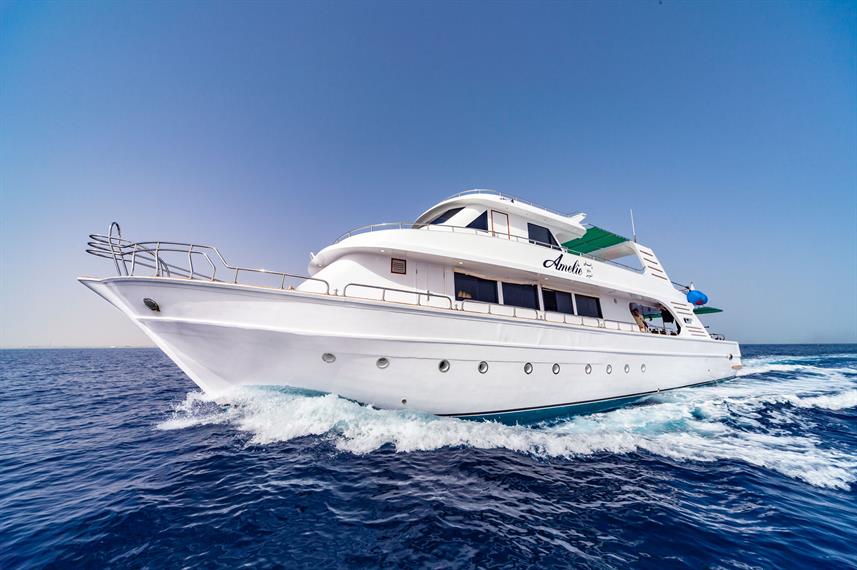 | Cheapest, Short Trips, Small Groups, Beginners | North | $ | 3 – 7 | 12 | Click Here |
| Odyssey | 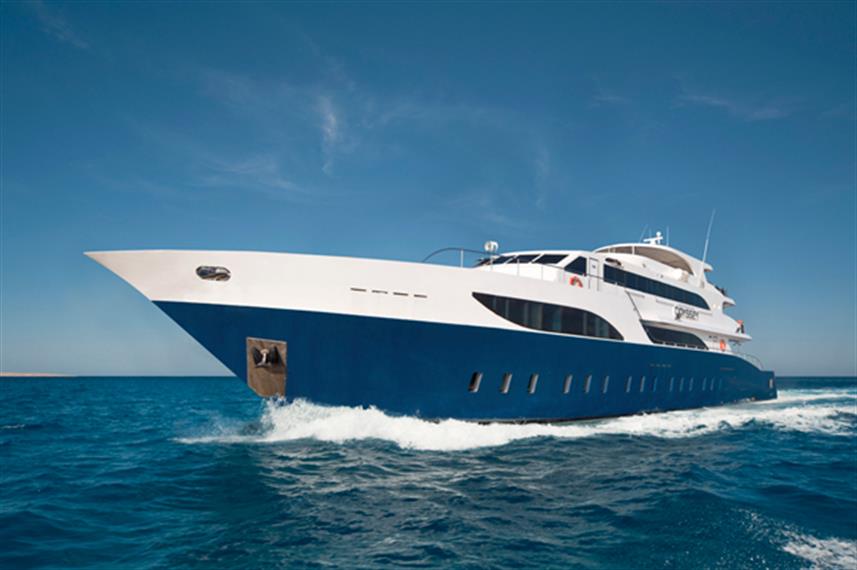 | Massage, Jacuzzi, Cabins with Baths, Luxury | South & North | $$$ | 7 | 26 | Click Here |
| Heaven Saphir | 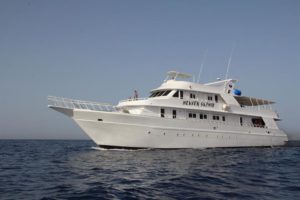 | Sunset Beach BBQ, Luxury Cabins, Small Groups | South & North | $$$ | 7 | 19 | Click Here |
| Snefro Love | 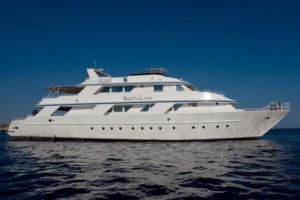 | Barbeque Lounge, Conservation Diving, Spacious | North | $$ | 7 | 20 | Click Here |
| Blue Force 2 | 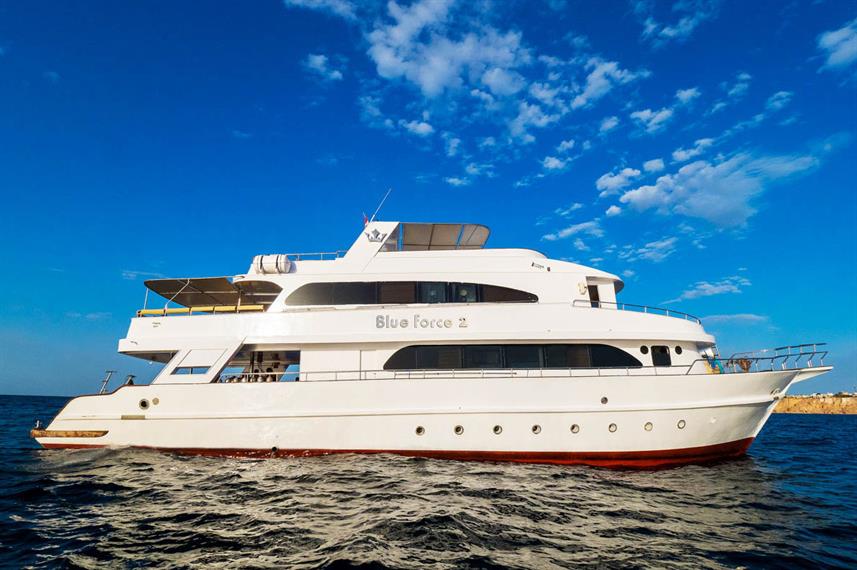 | Extra Night Trips, Ocean View Cabins, Modern | North | $$ | 7 – 8 | 18 | Click Here |
| Firebird | 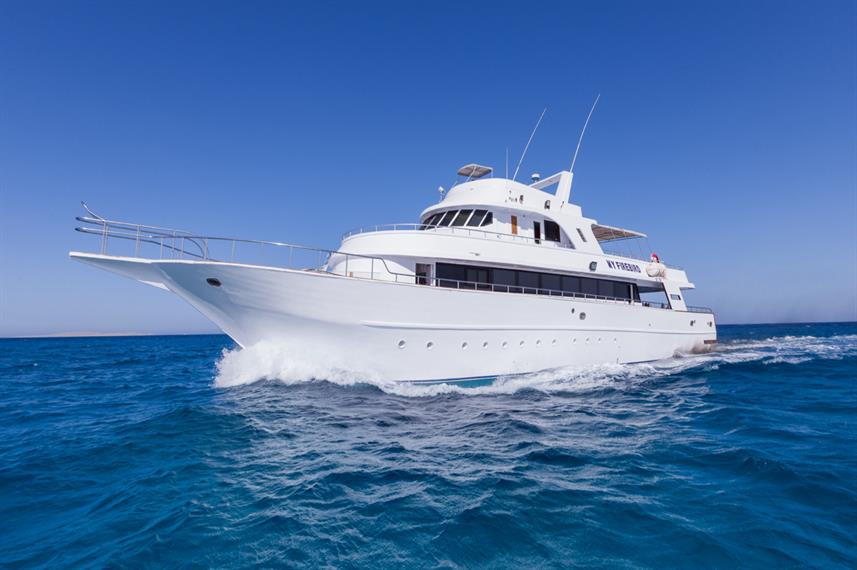 | Mega Long Trips, Small Groups, Budget | North | $ | 7 – 14 | 16 | Click Here |
| Blue Dive Cruise | 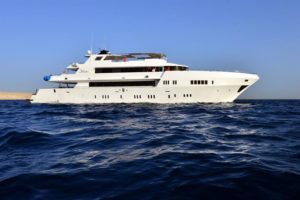 | Best Guest Reviews, Luxury Cabins, Extra Space | South & North | $$$ | 7 | 24 | Click Here |
| Red Sea Aggressor II | 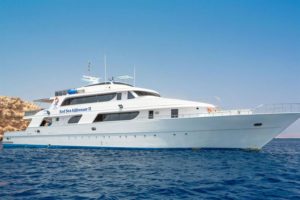 | Jacuzzi, Luxury, Big Cabins | North | $$$ | 7 | 22 | Click Here |
| JP Marine | 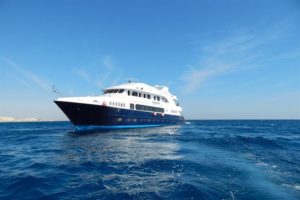 | Budget, Value for Money | South | $ | 7 | 28 | Click Here |
| Tillis | 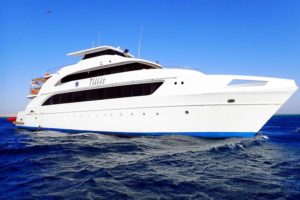 | Shark Trips, Honeymoon Cabin | South | $$ | 7 | 26 | Click Here |
| Blue Horizon | 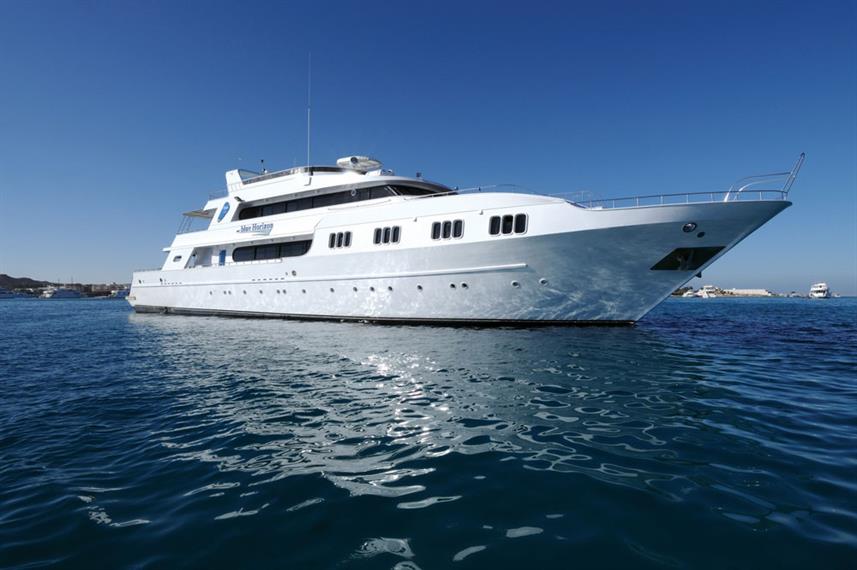 | Jacuzzi, Themed Itineraries, Value for Money | South & North | $$ | 7 | 26 | Click Here |
| Seawolf Soul | 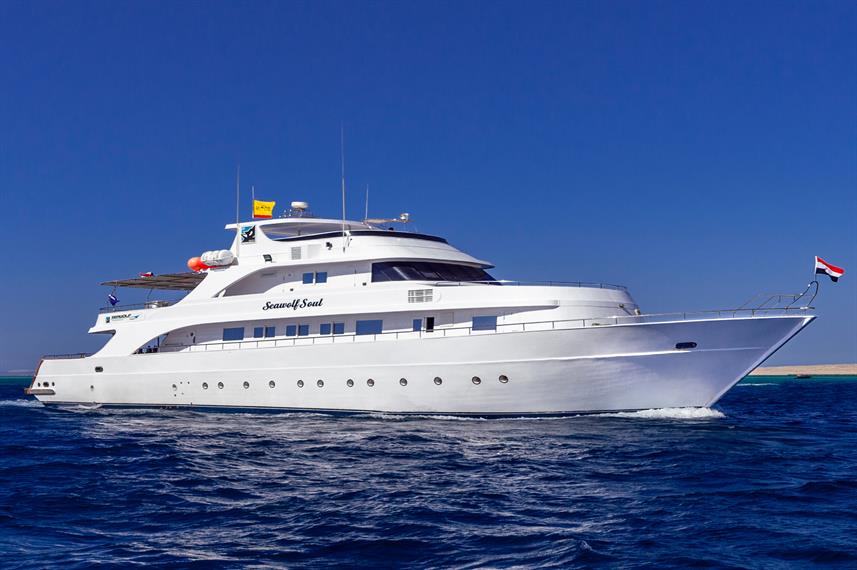 | Member of Highly Popular Seawolf Fleet | South | $$ | 7 | 22 | Click Here |
| Contessa | 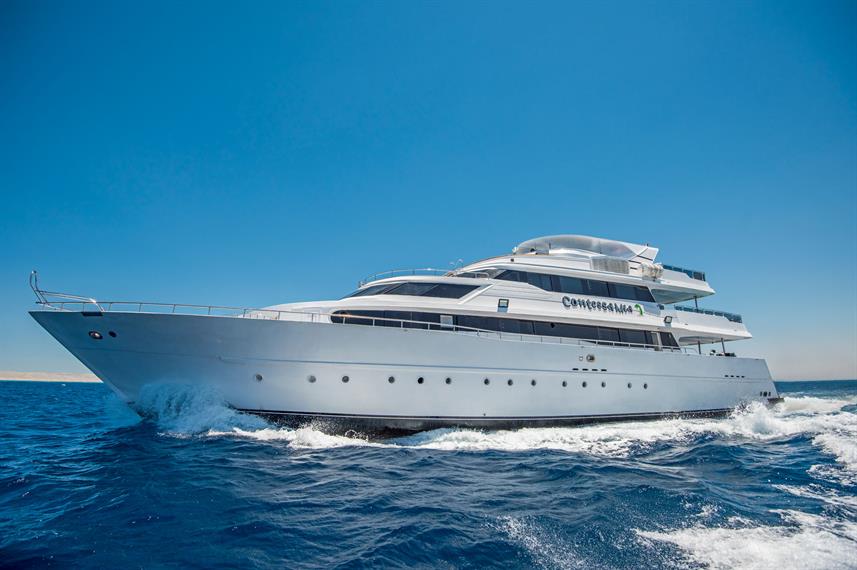 | 360 Views Dining Area, Spacious, Modern Cabins | South & North | $$$ | 7 | 22 | Click Here |
Reviews: Other Best Red Sea Liveaboards
2) Best Cheap Red Sea Liveaboard: Amelie
- Cheapest Red Sea Liveaboard
- Smallest Group Sizes (Max of 12 Guests)
- 3 – 7 Night Trips
- North Red Sea
- 6 Cabins – Twins & Doubles. Shared Bathrooms
Amelie is the cheapest Red Sea liveaboard on our list but thats not the only thing that makes this liveaboard special. It also takes the smallest group size at a maximum of just 12 guests, making Amelie a great option for anyone seeking a more subtle and intimate experience.
Trips usually last 7 nights – but there are also short 3 night trips available which is another thing few other Red Sea liveaboards offer. Routes explore the North Red sea which is famous for incredible shipwrecks and stunning coral reefs.
At 23 meters long, Amelie features 6 cabins with bunk beds and AC – bathrooms are shared. There are two partially shaded outdoor lounges, a dive deck and an indoor saloon and dining area.
3) Best Luxury Red Sea Liveaboard: MY Oddyssey
- Price: > $$$
- 7 Night Trips
- South and North Red Sea
- Private Bath Cabins
- Hot Tub
- Delicious Food
MY Odyssey is one of the all-time most expensive Red Sea liveaboards but you know where you’ll money is going. It is also incredibly luxurious; with things few other pricey liveaboards can offer: including massage services, a jacuzzi and massive cabins with their own private baths!
An elegant dining room and bar is located on the main deck; which is also where you’ll find the huge dive deck. On the upper deck, there is an indoor bar/lounge area with a massive plasma TV and entertainment system which leads out to an outdoor chill zone with beanbags and sofas. Next, head up to the top deck to find the jacuzzi with partial shading!Odyssey offers a great range of varied itineraries to choose from; most itineraries travel through the South Red Sea but there are some that go to the North Region. Most trips last 7 nights but on certain months it is possible to go on mega dive trips lasting 14 nights long!
- Price: > $$$
- Beach BBQ
- Standard, Honeymoon & Executive Suite Cabins
- Delicious Food
- 7 Night Trips
- North & South Red Sea
Heaven Saphir is another luxury liveaboard; at 36 meters long she takes a maximum of 19 guests in 3 cabin options – Standard, Honeymoon and Executive Suite.
There is a huge sundeck on the top deck; a partially shaded outdoor lounge on the middle deck and this leads in to a large, air-conditioned lounge, bar and dining area with suave lighting, books, games and TV.
Cuisine is an interesting fusion of Middle Eastern & European for some truly unique and delicious flavours. The staff are very helpful and friendly; there is daily house keeping and the dive guides are experts in their field.
Heaven Saphir runs a variety of 7 night long trips to either the South Red Sea where big pelagics like sharks, mantas and whales await or to the North Region with it’s many incredible shipwrecks. This is a somewhat expensive Red Sea liveaboard but the quality is almost second to none!
5) Extra Green Footprint: Snefro Love
- Price: > $$
- 7 Night Trips
- North Red Sea Itineraries
- First member of Green Fins Egypt Network
- 3 Sundecks
- Twin, Double and Master Cabins
Snefro Love was the first member of the Green Fins Egypt Network -which is aimed at combining diving with sustainability and conservation. Extra steps have been taken by the Snefro Love crew that are “useful, practical and environmentally friendly” to leave a greener footprint.
This is a large, 37 meter long boat that takes just 20 guests; trips last 7 nights and explore the North Region of Egypt’s Red Sea which is legendary for shipwrecks, coral reefs and beginner friendly dive sites.
The indoor lounge and dining area is very spacious and features a classical interior decor outfitted with modern amenities such as a huge plasma TV entertainment system as well as a rounded bar.
There are 6 twin cabins on the lower deck, 2 double cabins on the upper deck and a large, master suite on the main deck. All cabins have ensuite bathrooms and aircon with beautiful wooden interior designs.
6) Extra Night Trips: Red Sea Blue Force 2
- Price: > $
- 8 Night Trips (1 Night Longer than most other liveaboards) = extra dive sites
- North Red Sea Itineraries
- Ocean View Cabins
A low-budget liveaboard, Red Sea Blue Force 2 explores Egypt’s North Red where many incredible shipwrecks and fantastic coral reefs await.
Whereas on most Red Sea liveaboards, trips last 7 nights, on Blue Force 2 the average trip length is 8 nights; which means an extra day of diving. Guests will visit several dive sites that are rarely included on the standard, 7 – night long trips offered by other liveaboards.
Blue Force 2 takes a maximum of just 18 guests; less than many other liveaboards. There are 5 lower deck cabins with portholes and 4 upper deck cabins with large ocean view windows. All cabins have ensuite bathrooms and aircon. Twin and double bed options are available.
If you’re looking to explore the North Red Sea on the cheap and you want to squeeze in a few extra dives, Blue Force 2 is an excellent choice!
7) Mega Long Trips: Firebird
One of the all-time cheapest Red Sea liveaboards, Firebird runs a variety of trips that explore either the North or South regions of Egypt’s Red Sea. Whilst the majority of these itineraries are 7 nights long, on certain months it’s possible to go on diving trips that last 10 nights (usually November) or even 14 nights long (usually April).
With a maximum group size of 16 guests; Firebird takes less divers than most other Red Sea liveaboards. There are 8 cabins with twin and double options; each one has an ensuite bathroom, aircon, reading lights and storage space.
For common areas, there are 3 sun terraces with partial shading and furniture as well as an indoor saloon an dining area.
The experienced dive guides have an impressive knowledge of the Red Sea marine ecosystem whilst all the boat staff are extremely friendly and really go the extra mile to make sure every guest is fully catered to.
8) Best Guest Reviews: Blue Dive Cruise
- Price: > $$$
- Best Guest Reviews (9.6 / 10)
- 7 Night Trips
- North or South Red Sea
- 24 Guests
Blue Dive Cruise has the highest guest rating of any Red Sea liveaboard with an average guest rating of 9.6 / 10 across nearly 100 reviews.
This luxury yacht is 43 meters (131 ft) long yet caters to just 24 guests meaning it feels incredibly spacious. With beautiful hardwood interiors, the cabins are all equipped with a TV and DVD player as well as ensuite bathrooms, aircon and plenty of storage space. The “master cabin” is the largest of these with ocean views.
The common common areas are absolutely massive and include a huge outdoor terrace with partial shading as well as awesome nighttime lighting plus a spacious interior living room and indoor dining area.
Free nitrox is available for certified divers and for an extra charge guests can also complete diving courses or hire a private guide for the duration of the trip. Blue Dive Cruise offers 7 night trips to either the north or south regions of Egypt’s Red Sea.
- Price: > $$$
- 7 Night Trips
- North Red Sea
- 22 Guests
- Jacuzzi
Red Sea Aggressor II is one of the few Red Sea liveaboards to have a jacuzzi (hot tub), which is located on the partially shaded sun-lounge. There is also a large indoor dining area and an air-conditioned indoor saloon with massive Plasma TV, board games and bar.
All cabins feature private TVs, ensuite bathrooms, ac and hardwood interiors with some also offering ocean view windows. The dive guides and boast staffs are highly experienced; going above and beyond to create a fantastic experience for each guest.
Trips last 7 nights and are focussed around the North Region of Egypt’s Red Sea which is renowned for many incredible shipwrecks as well as superb corals home to many reef fish, turtles and blue spotted stingrays. There are also many easy dive sites around and with guests only requiring open water cert it’s a great choice for beginners.
10) Cheap South Red Sea Trips: JP Marine
- Price: > $
- 7 Night Trips
- North or South Red Sea
- 28 Guests
JP Marine is one of the cheapest Red Sea liveaboards out there – as well as one of the very few budget options to offer trips to the South Red Sea where big pelagics like sharks and manta rays await. There are a range of exciting itineraries to choose from including “Pelagic trail”, “Brothers & North” and “Golden Mix”.
Despite being tailored to the budget diver, JP Marine is still a nice liveaboard to spend a week on with two outdoor terraces; one with a bar and the other with a solarium for sun lovers. There is also an air-conditioned indoor lounge, dining and second bar area.
There’s a total of 14 cabins with private bathrooms, aircon, bedside table with lamp and two single bunk beds. All are situated far away from the engine room to ensure a quiet night.
Most diving takes place from the dive deck although there are also a couple of zodiacs handy to take guests to some the dive sites.
11) Cheap South Red Sea Trips w. Double Bed Cabins: Tillis
- Price: > $
- 7 Night Trips
- North & South Red Sea
- 28 Guests
Although slightly more expensive than JP Marine, Tillis is similar in that it is another one of the other few fairly cheap liveaboards to explore Egypt’s South Red Sea where big pelagic action including Oceanic Whitetip Sharks and Manta Rays awaits.
There are 13 cabins, all feature ensuite bathrooms and aircon. Unlike JP Marine, Tillis has 3 larger “honeymoon cabins” with double beds, ocean views and mini-bars.
For common zones there’s an indoor saloon with Plasma TV as well as a separate dining and bar area. Outside there are 2 terraces, one of which has another bar. Diving takes place from the fully-equipped dive deck located at the back of the boat.
12) Award Winning: Blue Horizon
- Price: > $$
- 7 Night Trips
- North & South Red Sea
- Jacuzzi / Hot Tub
- 26 Guests
Winner of the “Best Liveaboard Boat” Award in 2015 and 2016, Blue Horizon operates 7 night trips to either the North or South regions of Egypt’s Red Sea. A popular itinerary is the “Project Shark” trip which aims to pack as much shark diving as possible into one week whilst also educating guests about shark conservation.
As well as two partially shaded sundecks, there’s also a Jacuzzi located on the partially shaded sundeck which is a great place from which to take in the panoramic views. Inside, guests can enjoy the powerful aircon of the spacious indoor saloon it’s large Plasma TV and bar and dining area.
There are 9 deluxe cabins and 4 luxury suites; all of which feature an ensuite bathroom, ac, TV, DVD player and mini-bar. There is an extremely spacious dive deck with Nitrox/air filling stations as well as a battery charging station and freshwater tanks.
13) Sister Vessel to our Top Pick: Seawolf Soul
- Price: > $$
- 7 Night Trips
- North & South Red Sea
- 22 Guests
Seawolf Soul is a part of the Seawolf fleet, which includes my personal favourite liveaboard of all time: the Seawolf Dominator!
This is a and spacious yacht with an extremely professional and hardworking crew; whom go above and beyond in their level of attentiveness to guests. Also, the chefs cook amazing food and the dive guides are very experienced and knowledgeable.
Most routes operated by Seawolf Soul venture into the North Region which is famous for many incredible shipwrecks and some awesome coral reef. However South trips are also sometimes available.
There is a large partially shaded outdoor lounge as well as a sun terrace and loungers; inside guests will find the enormous indoor saloon and dining area with flatscreen TV. Cabins all feature ac, ensuite bathrooms and have hardwood interiors.
14) Mid-Pricer with Luxury Feels: Sea Serpent Contessa
- Price: > $$
- 7 Night Trips
- North & South Red Sea
- 22 Guests
Contessa (aka Sea Serpent Contessa) is extremely spacious and comfortable; it feels like a luxury liveaboard but in truth is only mid-priced and offers excellent value for money.
There are three outdoor zones: a sundeck, a partially shaded terrace with beanbags and furniture and a shaded bar. Inside there’s a dining area with 360 degree ocean views as well as a separate indoor living room with Plasma TV.
There’s a total of 12 cabins – guests can choose between lower deck twin cabins and main deck twin / double cabins. All have ocean view windows, ensuite bathrooms and aircon as well as plenty of storage space.
Trips are 7 nights long and usually explore the North Region where divers will discover many incredible shipwrecks. However, Contessa sometimes also makes trips to the South Red Sea which is famous for big pelagic fish, sharks and manta rays.
The dive guides are very experienced and have an awesome knowledge of the local marine life whilst the boat crew are incredibly friendly and attentive, going above and beyond to ensure each guests experience is perfect.
USEFUL INFO: Regions, Season, How to Get There & What to Expect (YAYAH!)
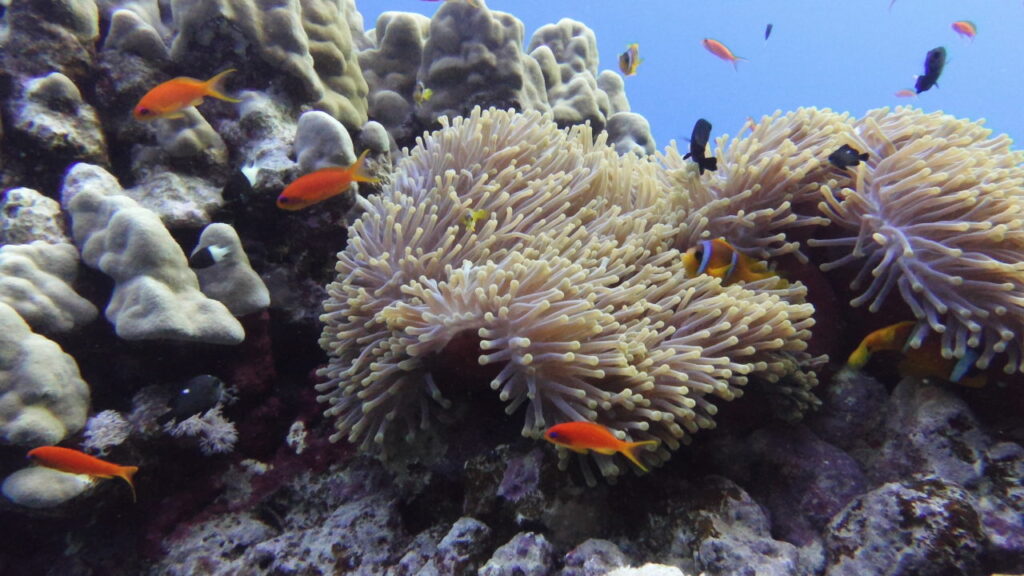
Regions: North vs South Red Sea
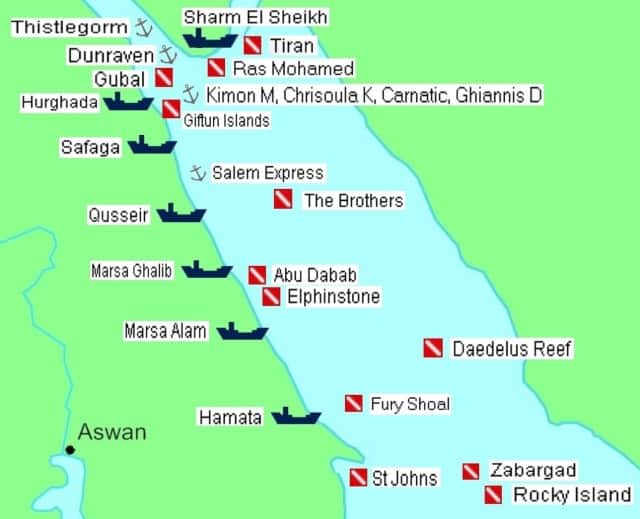
Practically every single Red Sea liveaboard in operation (and all of those listed on this page) operate in the Red Sea of Egypt. Egypt’s Red Sea can be divided into two regions: North and South.
- In the South Region, one can see big pelagic action such as sharks and manta rays. Dive sites are a little more off-the-beaten-track albeit sometimes less beginner friendly. The major dive areas are The Brothers, Abu Dabbab, Elphinstone, Daedelus Reef, Fury Shoal, St. Johns, Zabargad and Rocky Island.
- In the North Region, there are many superb shipwrecks. This region is also beginner friendly, easy to reach and generally cheaper to dive compared to the south region. The major dive areas are Ras Mohammed, Thistlegorm, Yolanda Reefs, Hurghada, Tiran and Abu Nuhas.
South Region:
Egypt’s South Region is known as the place for big pelagic action. At The Brothers, divers often see Whitetip Reef and Grey Reef Sharks. Even further south are the incredibly inquisitive Oceanic White tip Sharks (Elphinstone) as well as Hammerhead Sharks and Manta Rays (Daedalus).
Around the South Region, there’s also Tuna and Giant Trevally and Giant Barracuda, plus extra lucky divers may even see Thresher Sharks, Dugong and Whales!
Also, many divers consider the best of the Red Sea’s reefs to be located down south, where the coral is as healthy as is is limitless; adorning mighty walls dropping down over 300 feet deep as well as coasting countless pinnacles, vast plateaus, shallow gardens and around St. Johns, various rocky caverns and swim throughs.
Said coral reefs are home to a great number of turtles, blue spotted stingrays, nudibranch, octopus, crustaceans and all manner of reef fish.
The South Region is more off the beaten track compared to the north and so you’re also likely to see less other dive boats. Part of the reason for this is because some of the dive sites here experience stronger currents, making them less beginner-friendly.
That said, when I dived the South Region with Seawolf Dominator, we only experienced heavy currents on one day, when diving around Elphinstone (where we saw several Oceanic Whitetip Sharks, the highlight of my Red Sea liveaboard trip!).
Below, check out the video I made of my South Red Sea liveaboard trip:
The Brothers:
This is the northern-most point…of the South Region. Subsequently, it’s not always included in South Region itineraries.
The two Brothers Islands provide ample opportunity to view large pelagic fish and stunning coral and gorgonian fans that comprise much of the reef and nearby walls; Whitetip Reef and Grey Reef Sharks are also sometimes spotted.
Big brother island is home to several wrecks, which include the Numidia and Aida. Finally, the area is awash in stunning fish schools, including dogtooth tuna, barracuda, sweepers, and anthias.
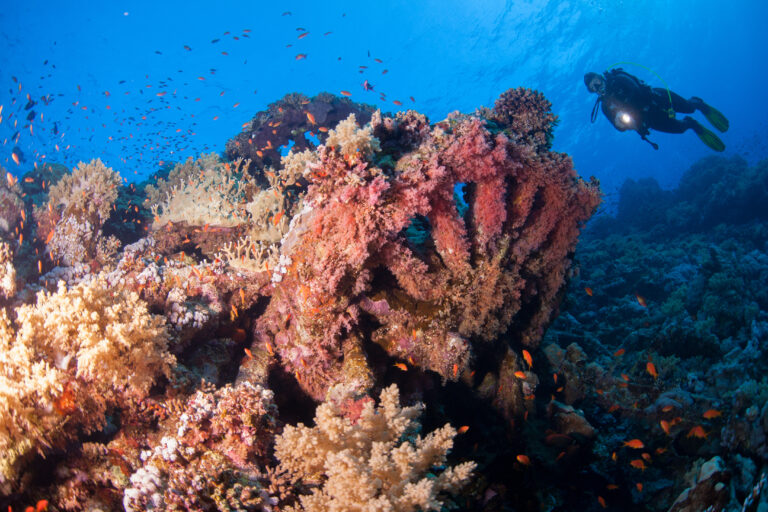
Daedalus:
This is a lonely reef located some 50 miles offshore that is lucky enough to boast marine park status. It is defined by many beautiful corals, anemones, and gorgonian fans, through which Red Sea clownfish, moray eels, dottybacks, and wrasse can easily be spotted.
The prevalence of currents in the area, while making the diving a little more challenging, also creates the perfect environment to spot sizeable pelagic fish like reef sharks and sometimes mantas!
Abu Dabbab:
Situated close to Marsa Alam; Abu Dabbab is the starting point of many South Region liveaboards and features many incredible shallow coral gardens with reef fish, turtles and blue spotted stingrays. Because there are almost no currents here, this is a great place for beginners and practice dives.
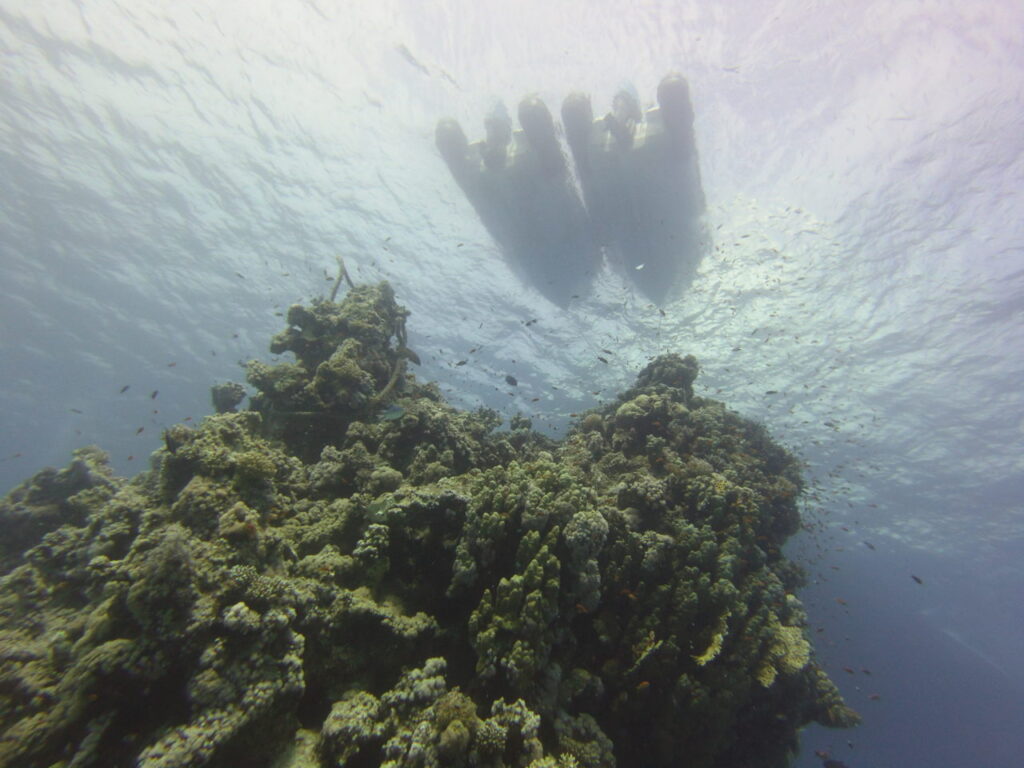
Big Giota:
Some of the most impressive coral reefs of the Red Sea are found here with humungous wall dives that stretch down for over one hundred meters and where there is an abundance of reef fish life as well as large fish including tuna, trevally and giant barracuda. Currents here can be strong but when I went there were none!
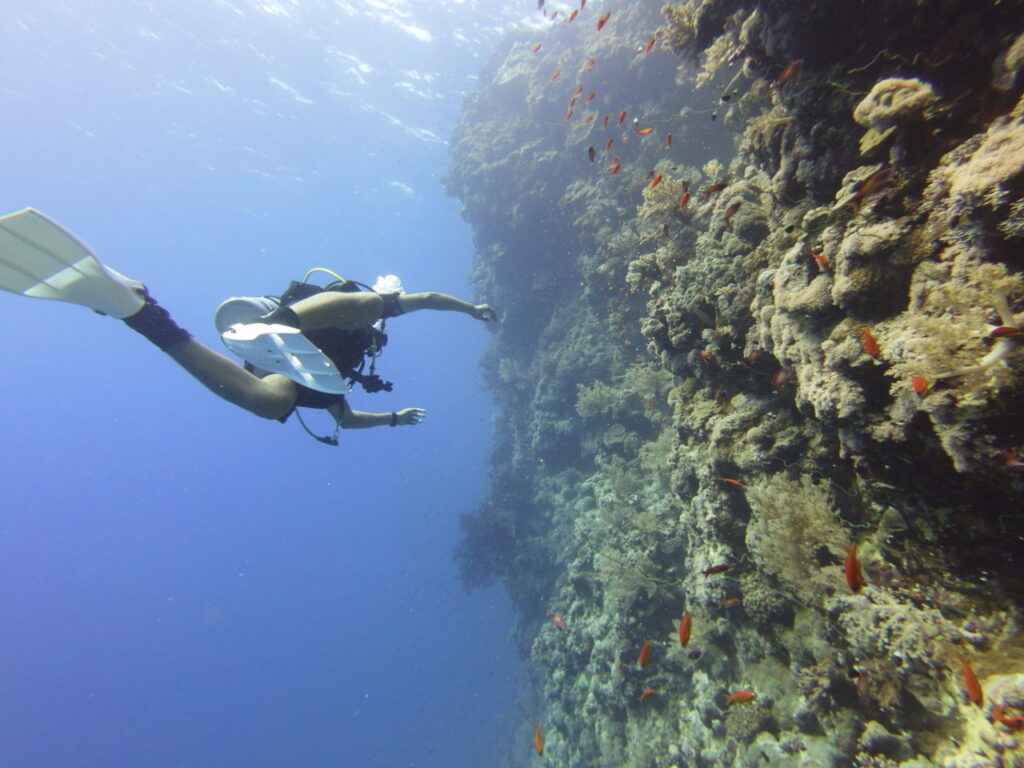
Elphinstone:
Named after the spectacularly incompetent General Elphinstone (who was largely at fault for the 1842 Retreat from Kabul, the greatest British military disaster of the mid-18th century) Elphinstone is divided into the northern and southern plateaus.
Both offer stunning views of beautifully intricate corals, gorgonian fans, sea whips, and sponges – the colors of which are brilliantly complemented by huge schools of anthias and other reef fish.
But the most memorable thing about Elphinstone is that it is arguably the best place in the Red Sea – perhaps world, to see Oceanic White tip Sharks; an extremely charismatic and inquisitive species of shark known for swimming right up to divers to inspect them! This was the highlight of my liveaboard trip in the Red Sea.
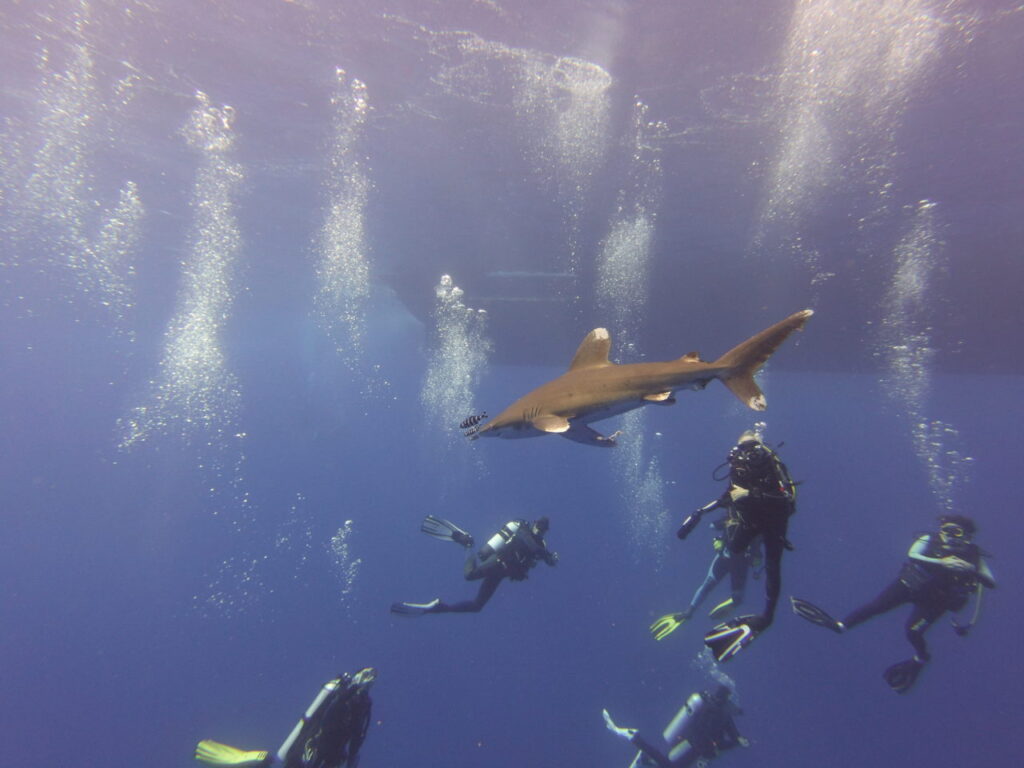
St. Johns Reef:
This diving area is at the most southerly point of most South Region routes and is often claimed to be a highlight of any South Red Sea trip.
The entire area is comprised of shallow caverns and tunnels which can easily be explored and are filled with fish and colourful coral that coats an incredible underwater labyrinth that takes several whole dives to explore.
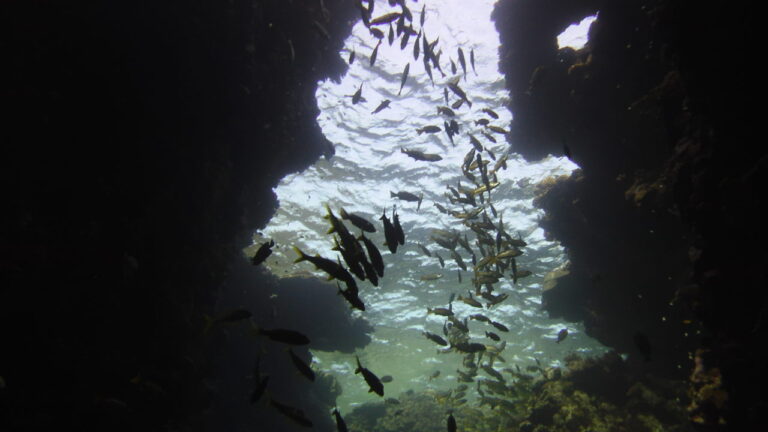
North Region:
The North Region is the most famous and frequently visited. With mild currents and shallow dive sites it’s a great place for beginner divers. Also, because more dive boats come here prices of diving safaris are usually a little cheaper compared to the south.
The most notable thing about the Red Sea’s North Region is its huge abundance of shipwrecks.
Most famous of these is the SS Thistlegorm; a 420 foot long cargo ship carrying armoured vehicles, arms and military trucks; it was sunk by Germany bombers in 1941. Now the coral encrusted wreck and its military cargo lie on the seabed, making for superb diving.
Northern routes in the Red Sea almost always feature a couple of dives around SS Thistlegorm as well as visiting a number of the many other wrecks found around Ras Mohammed National Park, Abu Nuhas and also Gordon Reef in the Strait of Tiran.
In addition to wrecks, the Red Sea’s northern region is also home to a great variety of coral in the form of pinnacles, canyons and shallow coral gardens. Found here are many reef fish, turtles and sometimes also small reef sharks.
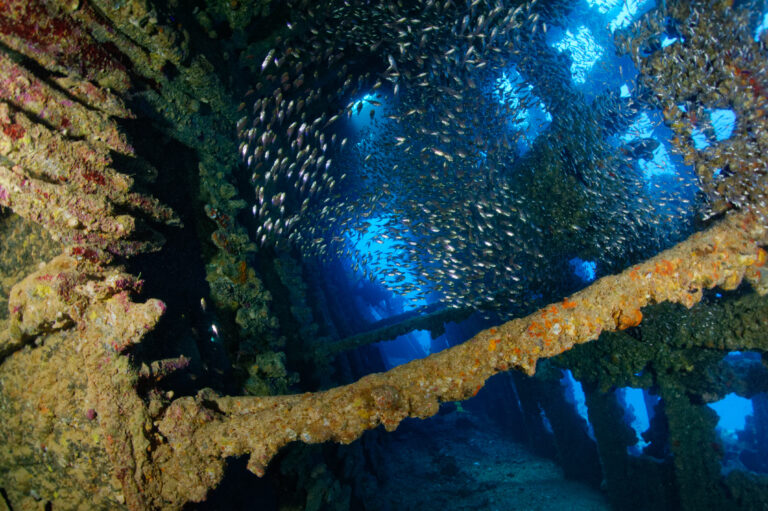
Ras Mohammed:
Diving in Ras Mohammed National Park means you’re diving through ocean history; the park was Egypt’s very first national park established in 1983.
The area on the southernmost tip of the Sinai Peninsula is famous for impressive walls that seem to drop straight down into the ocean’s depths, along with beautifully healthy reefs and their accompanying entourage of wrasse, anthia, and jackfish that are always present.
Larger pelagic fish are also very common sights, as reef sharks, tuna, and barracuda make their way through the reefs looking for food.
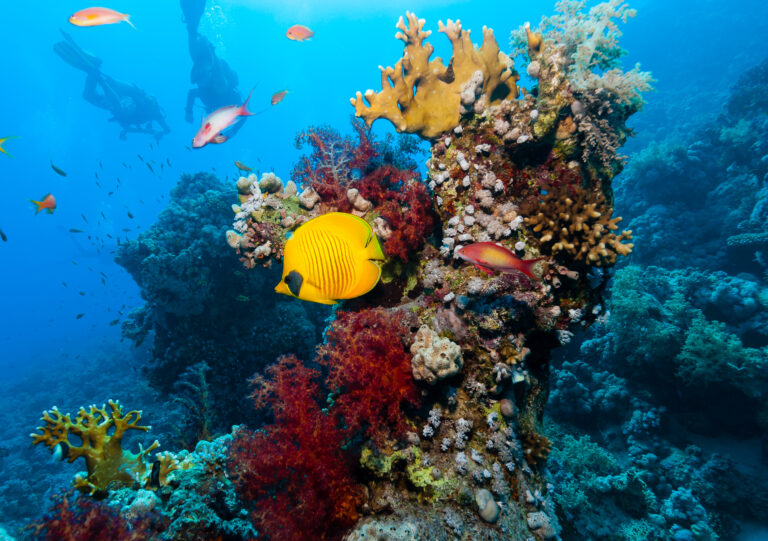
Thistlegorm:
The Thistlegorm is perhaps the most famous wreck dive in the world! German bombs sank the WWII cargo ship in October of 1941, and its entire cargo of arms and supplies for the war effort went down with it.
Today, however, its cargo holds are a wreck diver’s dream; you can explore the trucks, armoured vehicles, weapons, and a plethora of other war supplies that are still waiting for delivery under the waves.
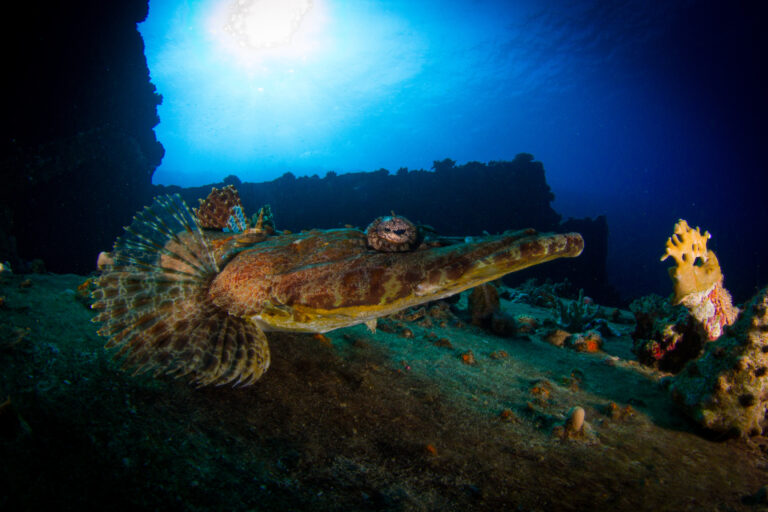
Shark & Yolanda Reefs:
One of the most spectacular dives at Ras Mohammed National Park is undoubtedly Shark and Yolanda Reefs.
The reefs are marked by two massive peaks that rise from the ocean floor and are encrusted with a host of corals and gorgonian fans. As you drift between the two, you’ll spot large pelagic fish that inhabit the region, such as grey sharks, gigantic tuna, and hammerheads.
At Yolanda reef, you’ll be able to dive on the wreck that shares its name and features a 1970s British transport that was laden with toilets and bathtubs, which certainly make for some exciting diving photos!
Abu Nuhas Reef:
This reef, just off Shadwan Island has drawn a great many ships into a final watery embrace over the years. There are five cargo shipwrecks strewn across this reef, making it a favorite destination for Egypt liveaboard dive boats looking for a wreck intensive trip.
The ships include the Greek Seastar, the Chrisoula K (also Greek, sank in 1981), the Kimon M (German ship, sank in 1978), the Ghiannis D (Japanese ship, sank in 1983), and the famous Carnatic, a British ship which sank in 1869 with a full load of gold and wine – quickly recovered after the wreck.
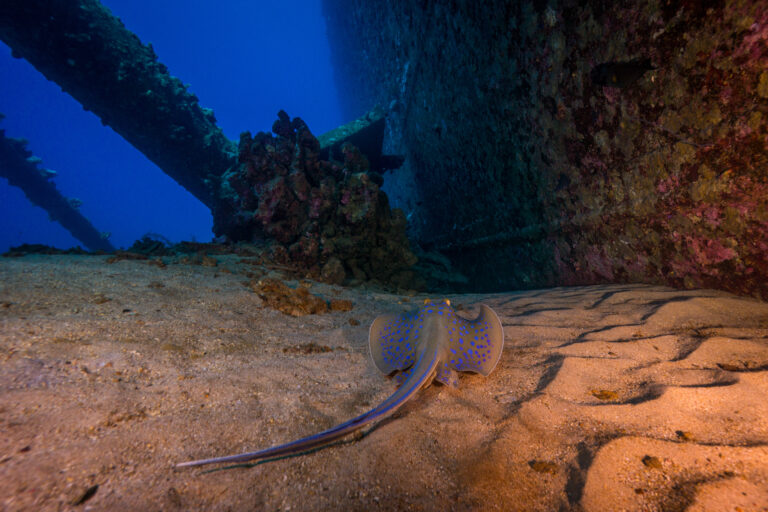
Red Sea Diving Season - When to Go
Due to minimal rainfall, the red sea can be dived year round. That said different seasons offer considerably different experiences. Let’s take a closer look:
December – February: This marks the winter period in the Red Sea. During this time, the water is fairly cold at around 72 F (22 C). This is also the windy season, meaning surface conditions can become quite rough, particularly in northern Egypt. However, visibility is at it’s greatest during this time. It’s also the best time to spot an Oceanic Whitetip Shark.
March – May: These are the Red Sea’s spring months. Both air and water temperatures are fairly warm, resulting in an optimum balance. This is also the best time to see a Whale Shark, especially in the northern Red Sea. However, this is also diving high season so some dive sites, especially in the northern red sea, maybe crowded.
June – August: Diving Low Season. Air temperatures become stiflingly hot. However, these warmer temperatures do force Hammerhead sharks further north into Egyptian waters. June to September is the best time to swim with these incredibly shaped predators in the northern red sea. This is also the best time to snag discount liveaboard deals.
September – November: Autumn period in the Red Sea. Air and water temperatures balance for ideal comfort both above and below the water’s surface. This period is the best time to spot Thresher Sharks in the north red sea and manta rays in the south. This is also one of the more crowded times of year, however, less so than March – May.
What to Expect on a Red Sea Liveaboard
In this section, I’ll tell you exactly what to expect when going on a Red Sea liveaboard trip. This is all first-hand info from my own experience (<– click to read the whole story!) diving the South Region of the Red Sea with the Seawolf Dominator in November 2022!
First things first, you need to get to Egypt; it is from here that all Red Sea liveaboards depart. If you’re diving the North Region; your liveaboard will either depart from Hurghada or Sharm El Sheikh; both of which are within less than 30 minutes taxi ride of their own International Airport.
If you’re diving the South Region, you liveaboard will depart from Marsa Alam (aka Port Ghalib) which also has an International Airport, a 50 minute taxi ride away. Because I was diving the South Region, I arrived at Marsa Alam; a sleepy town with exactly zero things to do besides be used as a launch pad for diving trips.
Your liveaboard will arrange to pick you up from wherever you’re staying on either the night before or the morning of departure. You’ll have a named box in which to keep your dive gear whether it’s your own, rental equipment or a combo of both.
There’s several forms to fill out, regarding health and safety. You’ll want to already have you dive insurance locked down when doing these so you can put in the ref number. If you have a lot of luggage; your big suitcases can go into storage. And then it’s time to be shown to your cabin and unpack the rest of your things.
After this, there’s an orientation briefing and then time to set sail for your first dives. Generally, the first day’s diving is around extra easy dive sites so you can check your gear is working and that you feel comfortable in case it’s been a while since your last dive.
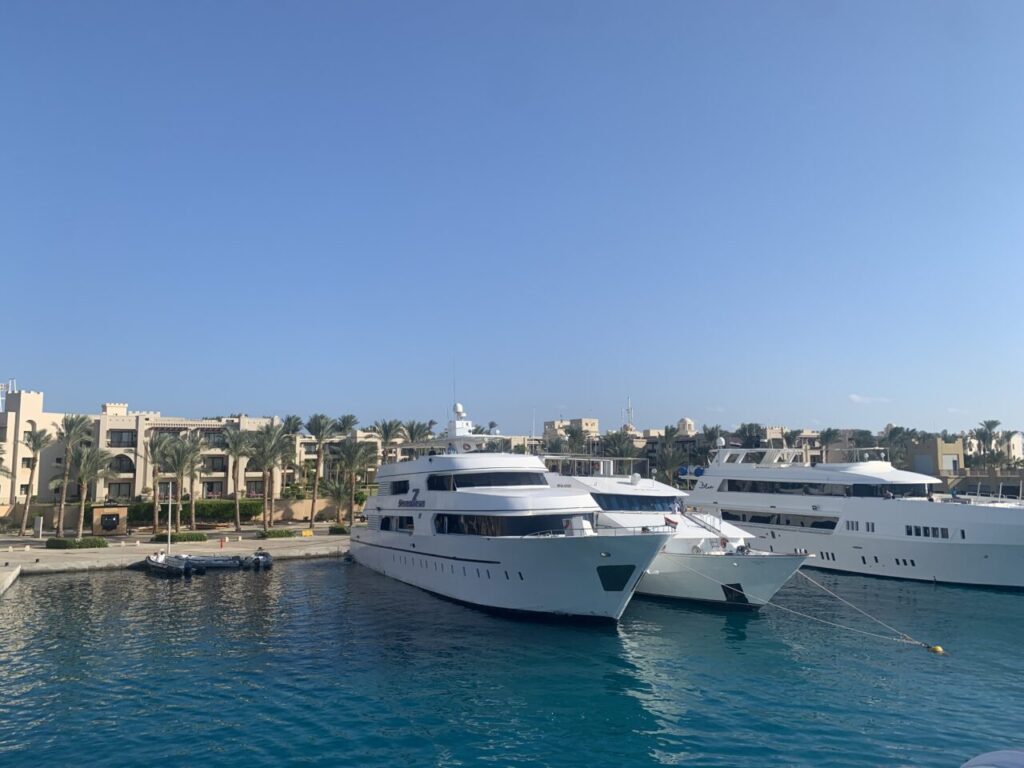
Most Red Sea liveaboard trips last a total of 7 nights but a few outliers can be as short as 3 nights (Amelie) or as long as 14 nights (Firebird).
Generally on the first day, there’s only 2 dives and the same again on the last day. But for all other days; there’s usually 3 dives a day a night dive. Of course, every dive is optional: you can sit out any dive you like! When I went on my South Region trip with Seawolf Dominator I was only one of two guests who completed every dive :D.
Excluding the first and last day; the Schedule is generally this:
- Wake-Up call between 6 – and 7 am. You then have about thirty minutes to grab a snack (like a cereal bar) and a coffee before a bell or intercom will announce it’s time to be briefed for the first dive of the day!
- After finishing the first dive and getting back on the liveaboard; it’s time for breakfast. You then have a couple of hours to chill out; most folks headed to the partially shaded out door lounge for a read or to chill with some music; others went into the air-conditioned lounge.
- Next, it’s time for the second dive of the day. Followed by lunch! Then you have a couple more hours to chill.
- Third dive of the day followed by sunset drinks up-top. Then comes dinner. A while later, there’s usually a night dive.
- People can then do as they please – some have a few drinks and play card games, others head for an early night (especially those randy couples huhuhu!) and so forth. I usually stuck around for a game of cards or two, sometimes a shot of liquor if it was going and then headed to bed with my at-the-time favourite book.
- On the last day, you’ll arrive back at the same port from which you started. Do remember, you ought to wait at least 16 hours after your last dive before flying!
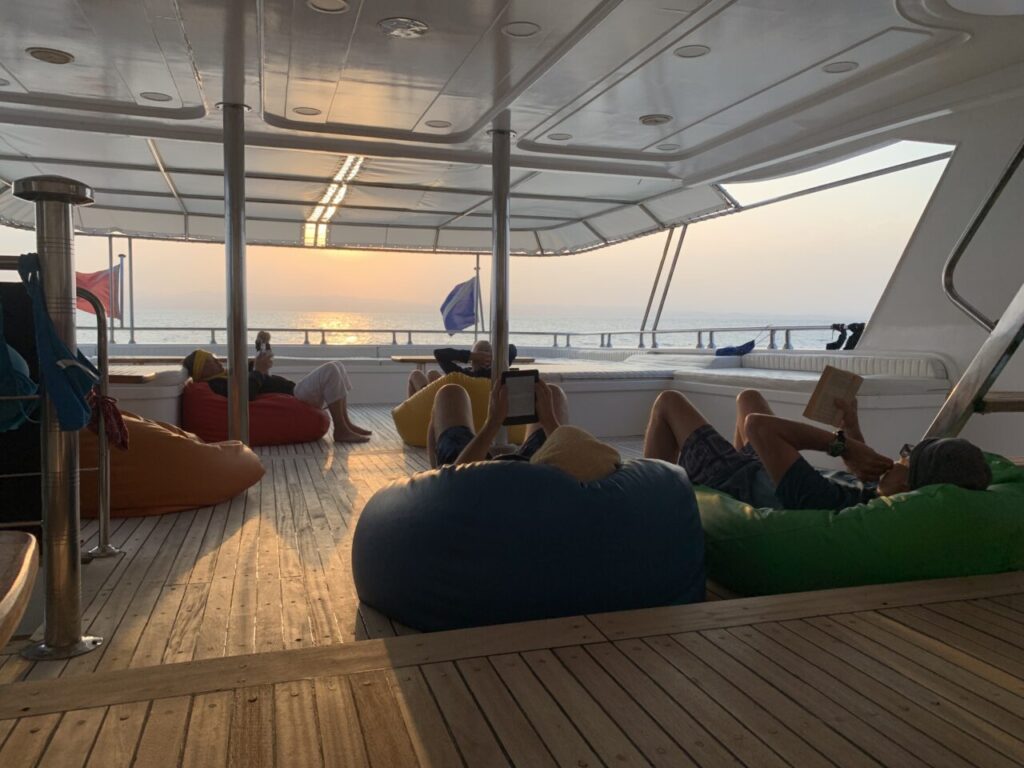
Packing List for Red Sea Liveaboard
- Scuba Diving Equipment: You can also rent all of your gear from the liveaboard, but for each piece that you rent there’s a small additional charge. So if you have your own dive gear, bringing it will save a little money.
- Ear Drops: a lot of divers who’ve never had problems with their ears before…do after diving so intensely as one does on a liveaboard. Here’s a secret tip though: something I’ve found far more useful at preventing ear pain from diving, is to throughly wash out each ear for several minutes under the shower after every dive.
- Underwater Camera: to record your liveaboard odyssey with! Just remember to not spend the whole time looking through a lens and take it all with your own eyes to.
- Reef Safe SunScreen: you will most definitely want to put sunscreen on your face and other exposed areas of your skin. Trust me when I say that even if you’re not spending any time on the sundeck, just the bit of time you spend at the water’s surface will be enough to get your face pretty burnt without any protection.
- Dive Log: to record your underwater adventures.
- Surface Marker Buoy: It’s extremely handy to have one of these on you in case you get separated from the group during your dive and surface alone.
- Fast Drying Microfiber Towel: There will be towels on the liveaboard but having one of your own can come in handy.
- A Bloody Good Book: honestly, one of my favourite things to do in the evening (by which point everyone is pretty wiped out) was to retreat into my cabin with a book and just read.
- Ear Pods: my other past time of choice was listening to podcasts and music, so do bring some Ear Pods or headphones for this!
- And of course: all the obvious things you would take on any trip! Clothes, toiletries etc. Ear buds are also a great investment if you’re a light sleeper as if you’re a lone traveller you are likely to get paired with someone else in a twin cabin.
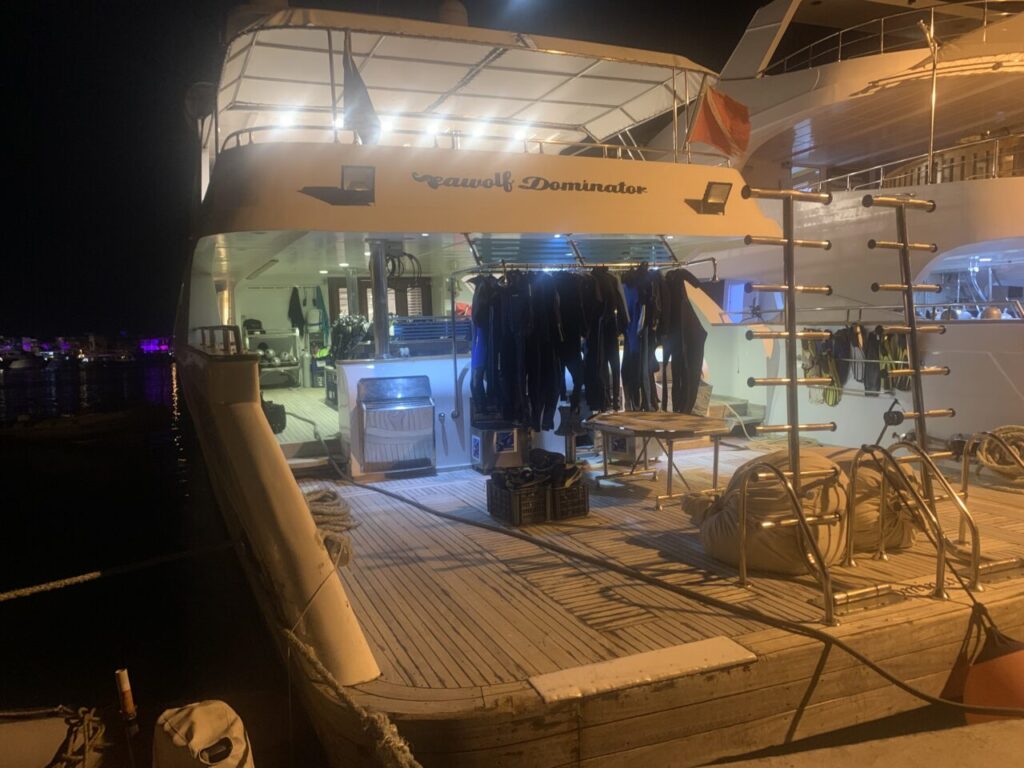
First Timers Tips for going on a Liveaboard
- Throughly rinse your ears out under the shower after each dive. This will greatly reduce the likelihood of the ear ache some divers experience when diving as frequently as one does on a liveaboard. You can also buy divers ear drops, although in my experience, simply rinsing our your ears is actually more effective.
- Factor into your budget a decent tip to give the staff at the end of the week. Often they’re on a pretty low wage and from poorer parts of the country and/or world. There’s usually around 15 staff on a boat; so you really want to give a tip of at least around $150 so that they all get ten bucks each.
- Remember, the North Region is where you’ll find plenty of wreck dives in fairly shallow waters without currents. More divers go here so liveaboards in this area tend to be slightly cheaper.
- The South Region is where you’ll find big pelagic action like sharks and manta rays. It’s a little more off-the-beaten-track and a few of the dive sites are more challenging.
- Make sure you have dive insurance! This is mega important – you would not want to have an accident and not be covered. Check out my page on the best diving insurance!
- You should definitely get Nitrox certified. It only takes half a day to complete this cheap course. I’ve been on liveaboards where literally every guest is diving on Nitrox so being the odd one out would mean having a different dive profile to everyone else. Luckily, you can get your Nitrox course on the liveaboard trip itself!
- Always respect marine life. Do not touch, and for the love of Poseidon, master your buoyancy before you go getting an underwater camera. Too many times I’ve seen fools ignorantly kick coral behind themselves because they’re obsessively focusing on trying to take a photo of what’s in front.
- Be present! No matter how badass an underwater photographer you are, try not to spend all your time beholding the marine kingdom behind a dive camera. It’s always better when seen with the naked eye.
- Have fun! That’s what you’re there for right?! Go out of your comfort zone, talk to people you normally wouldn’t, be engaged and present, kind and aware, driven and focused. Adventure is out there!
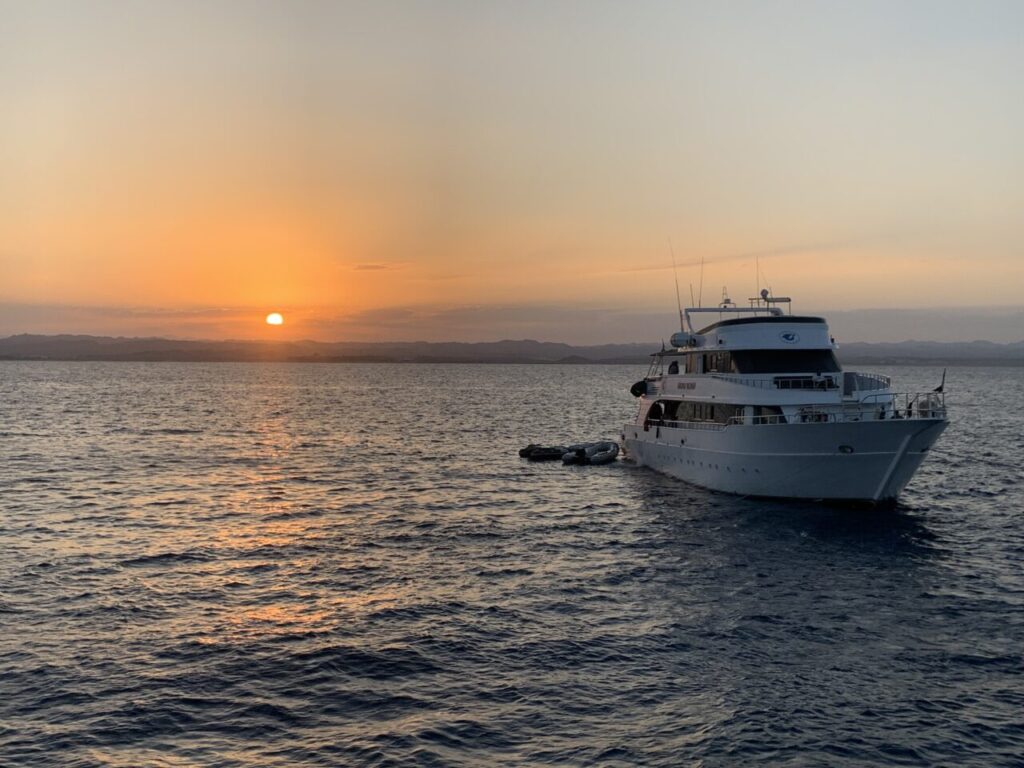
Diving Squad Debriefing
Looks like you gone done dived all the way down to the deepest, darkest depths of the Diving Squad dive page on diving the Red Sea with a Liveaboard. Great diving job!
What you’ve read today comes from our own first hand experience of actually going on Red Sea liveaboards ourselves – something some of them other fancy scuba diving blogs don’t got none of! Personally, I was blown away during my trip through the South Red Sea with the Seawolf Dominator.
We constantly update our content so you can rest assured that what you’ve read today reflects the very latest and up-to-date info regarding booking a Red Sea liveaboard in 2023. And – we’ll be going back there in 2024 to gather fresh new content to supply you with so keep checking back on this page.
In the meantime, if you have any questions: feel free to reach out to me on the Contact Page!
Alex
Support the Squad!
Some of the links on this page are affiliate links. This means that if you book a liveaboard, we’ll earn a commission at no extra cost to you. It’s funds like these that help us keep this site fresh, awesome and sexy whilst continuing to send our Diving Squad crew out into far flung corners of the world to gather fresh content. Cheers!
